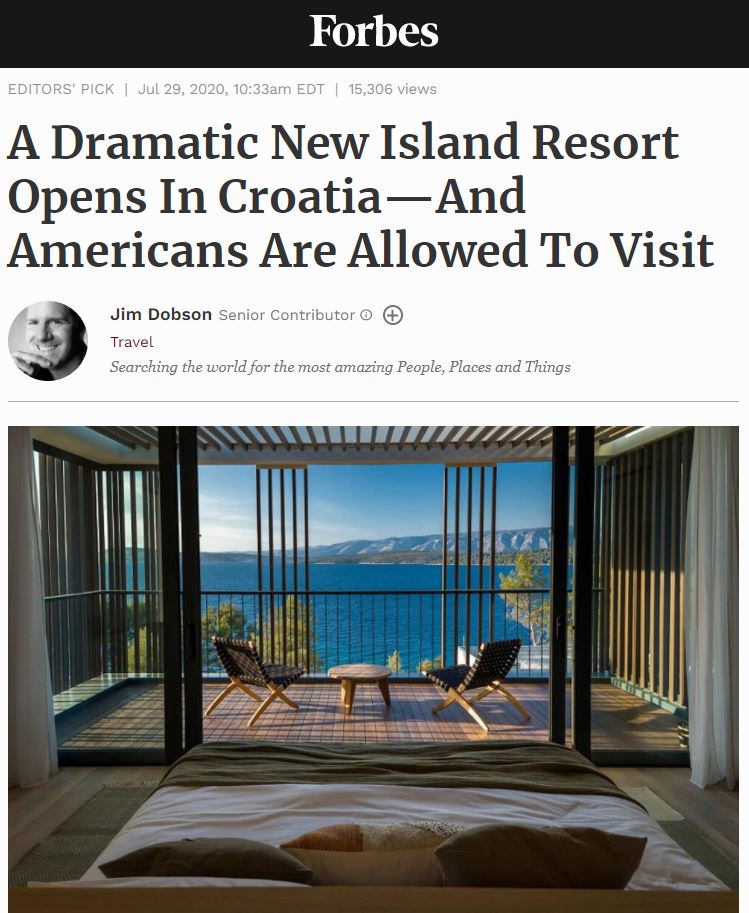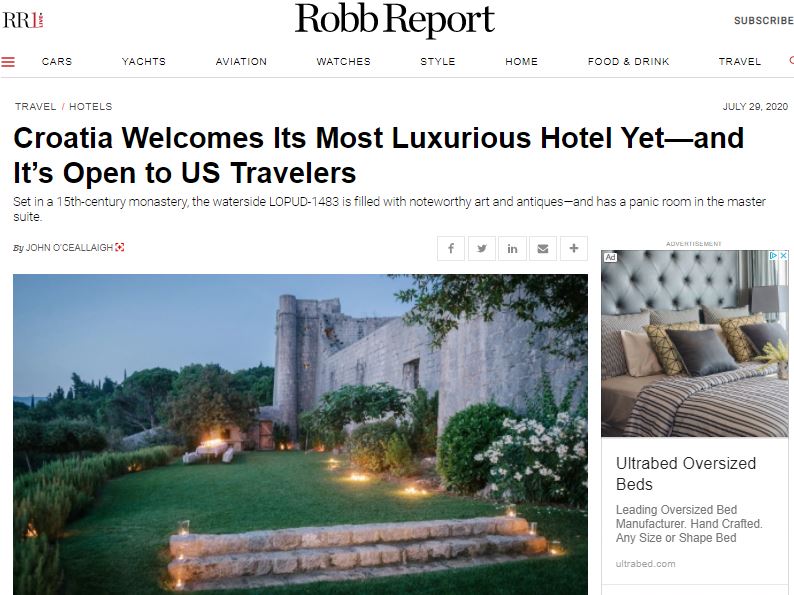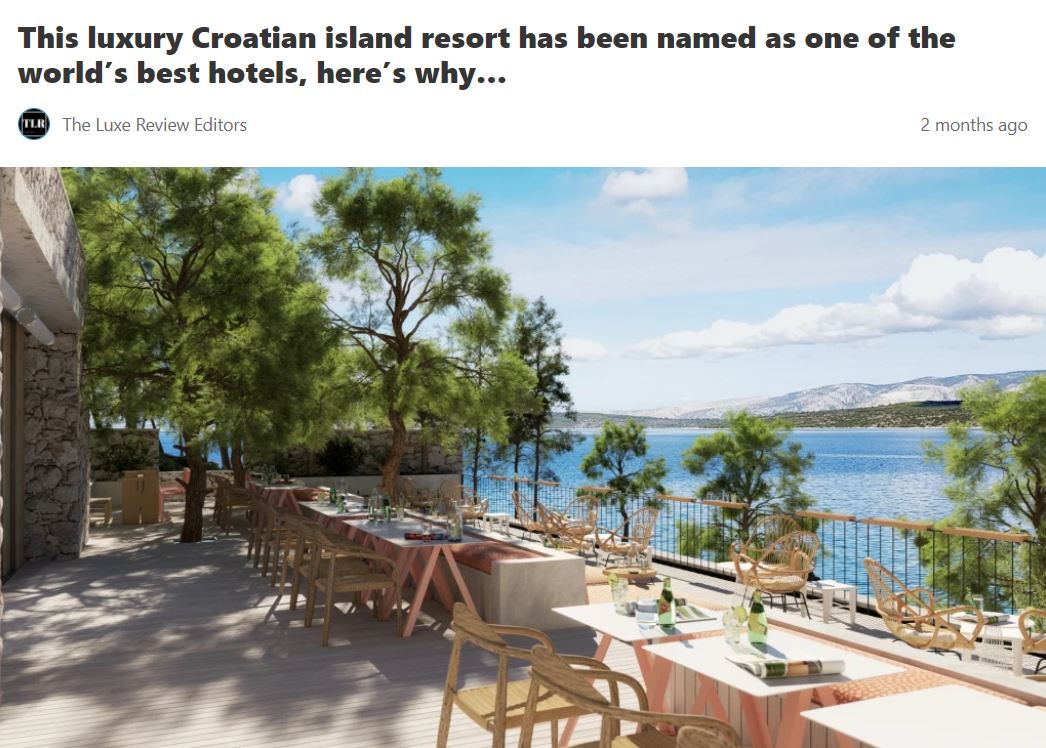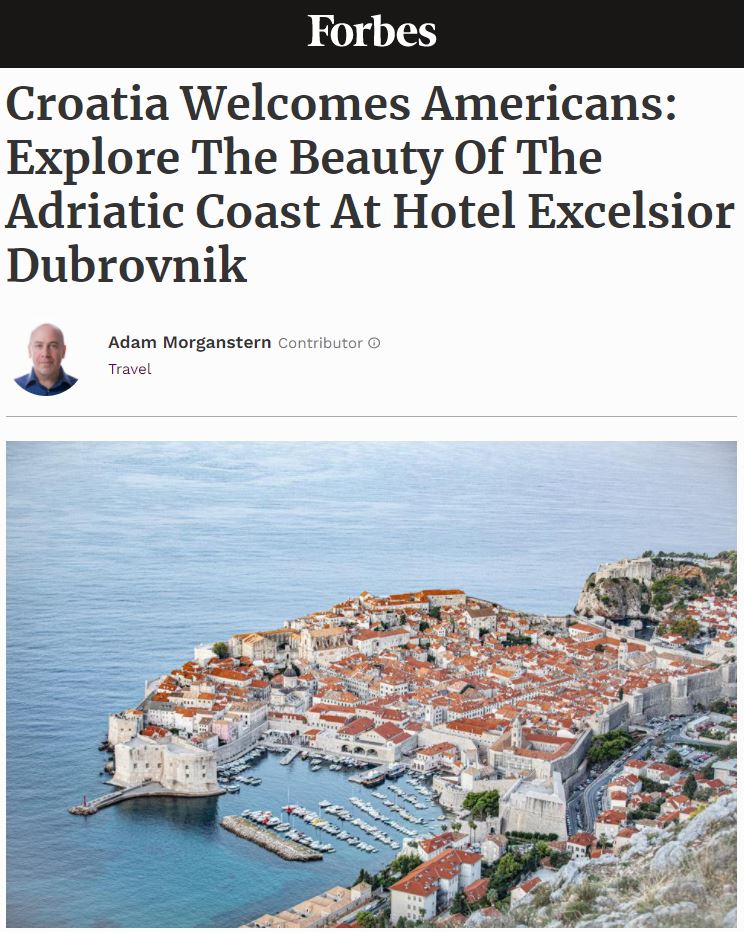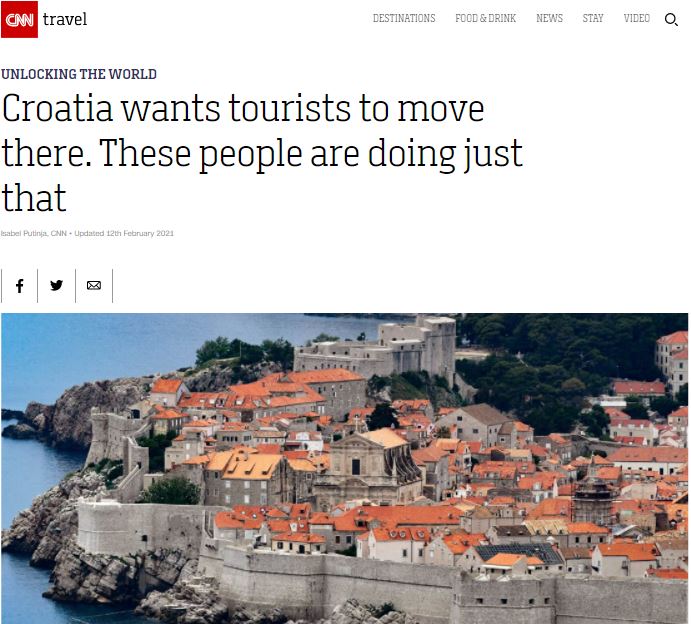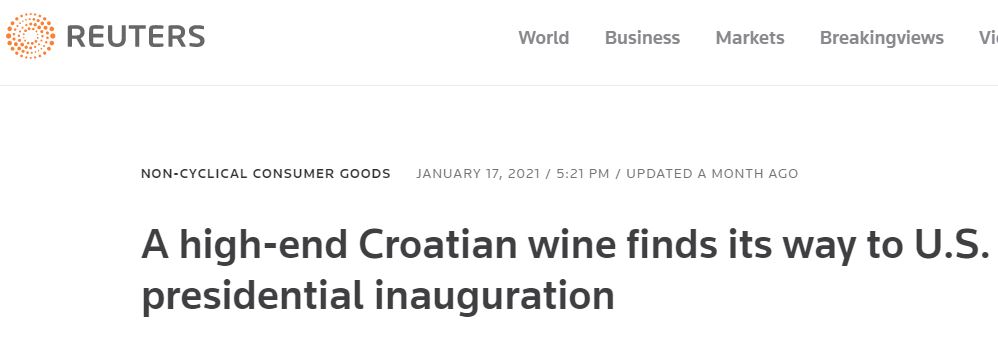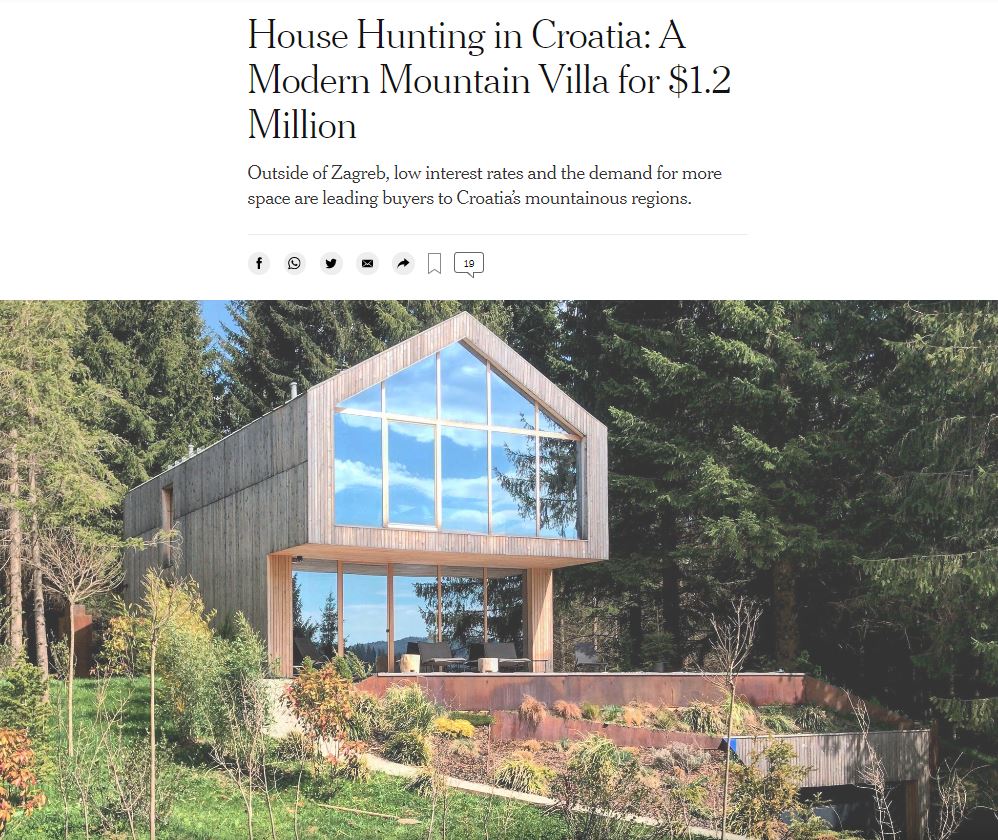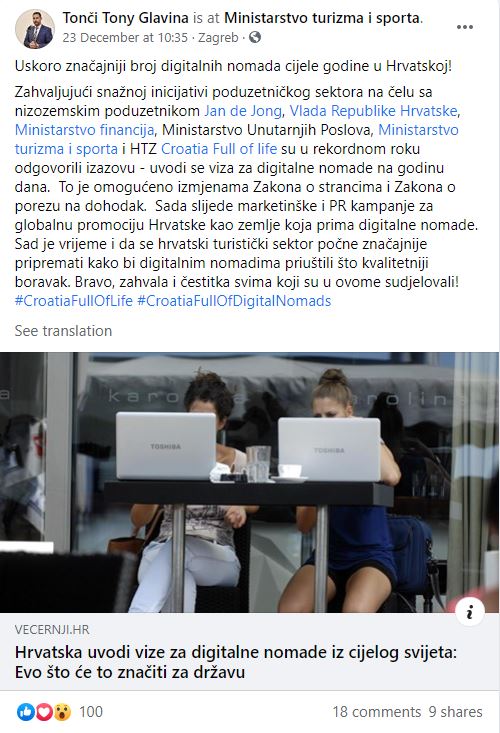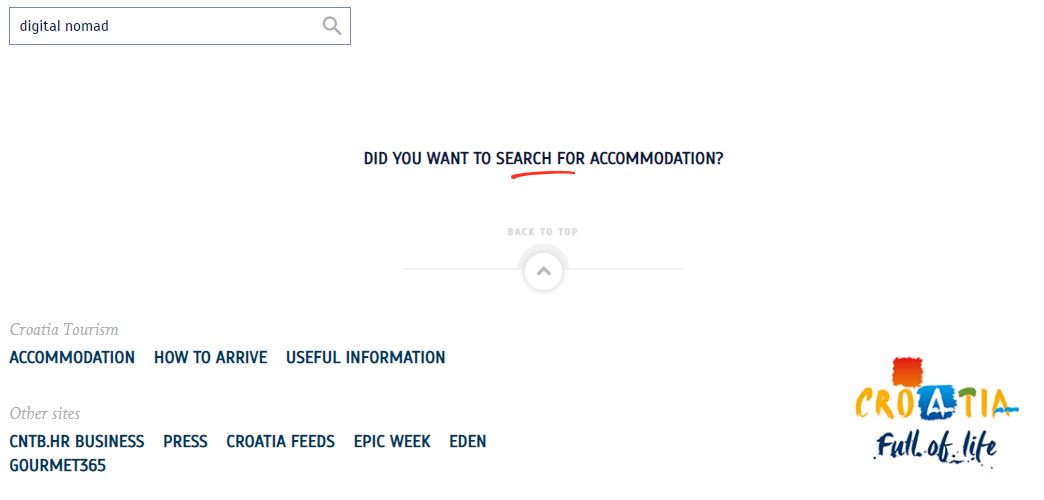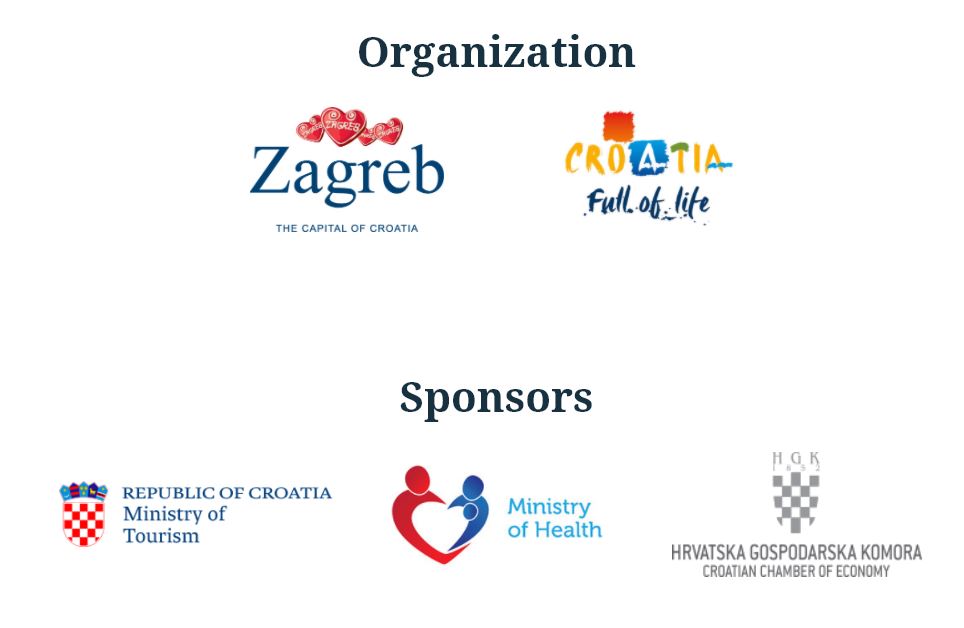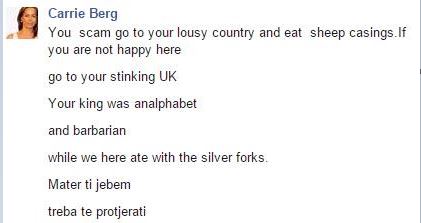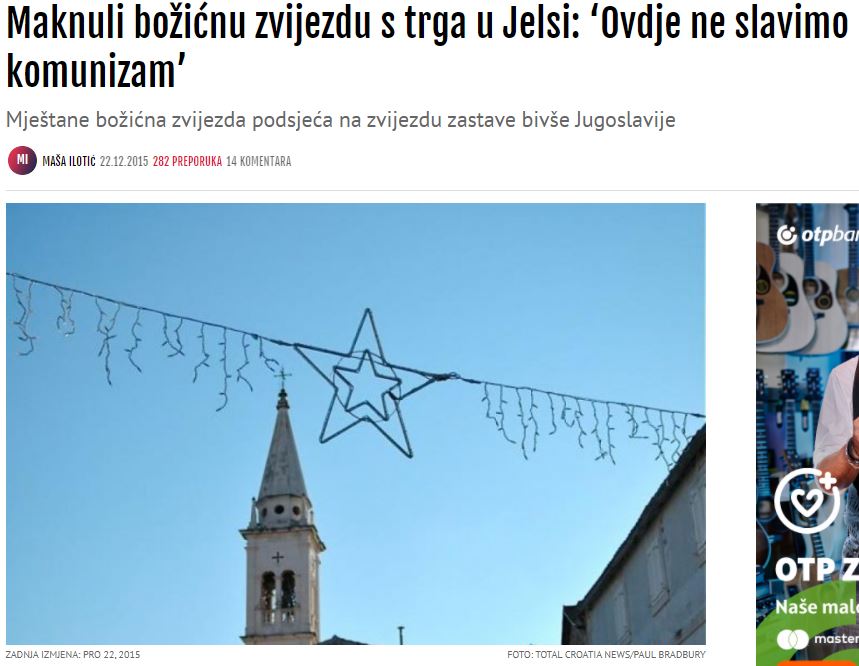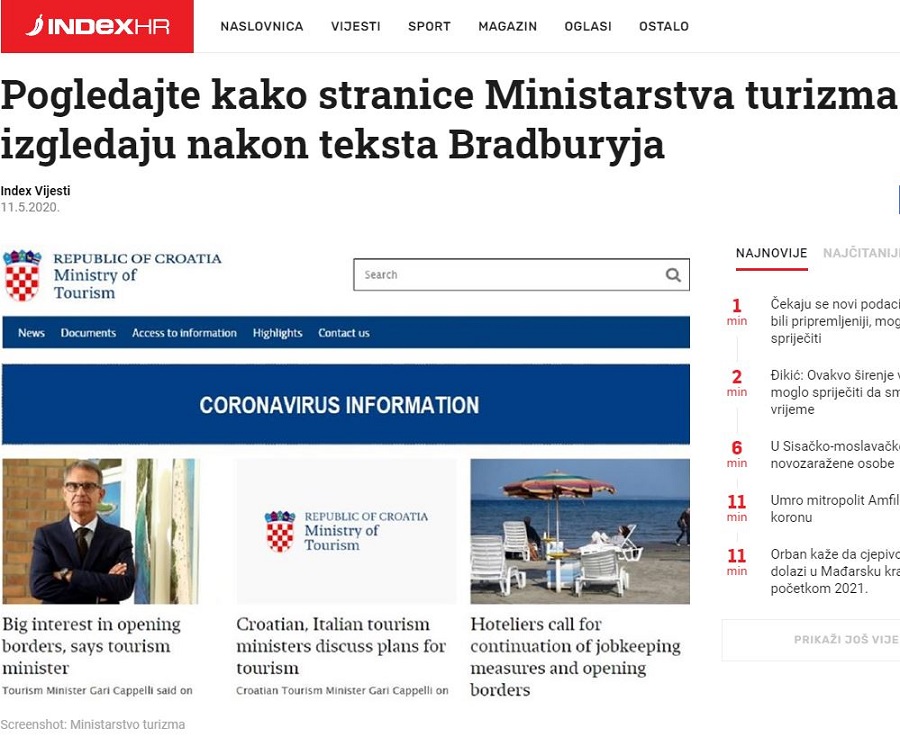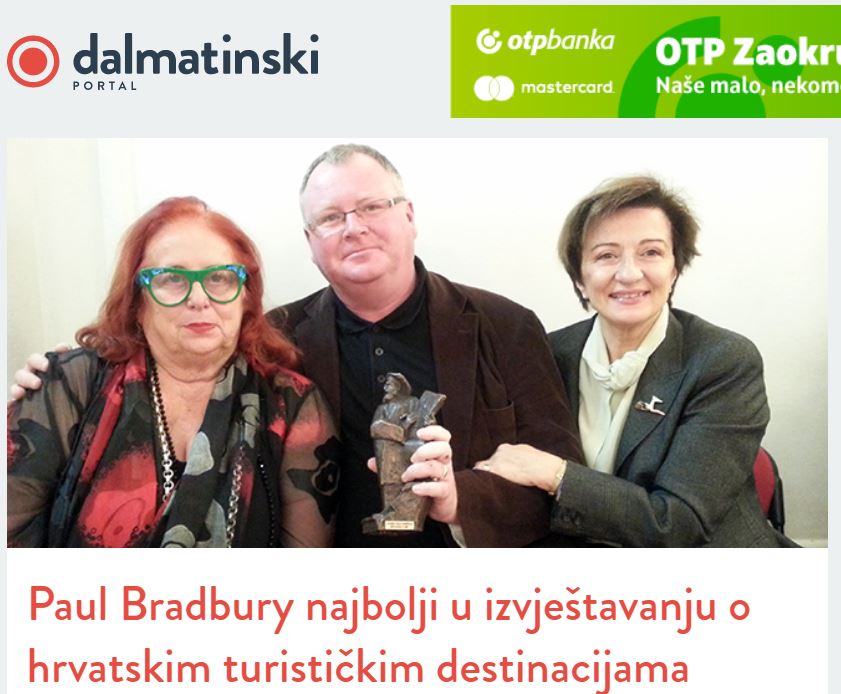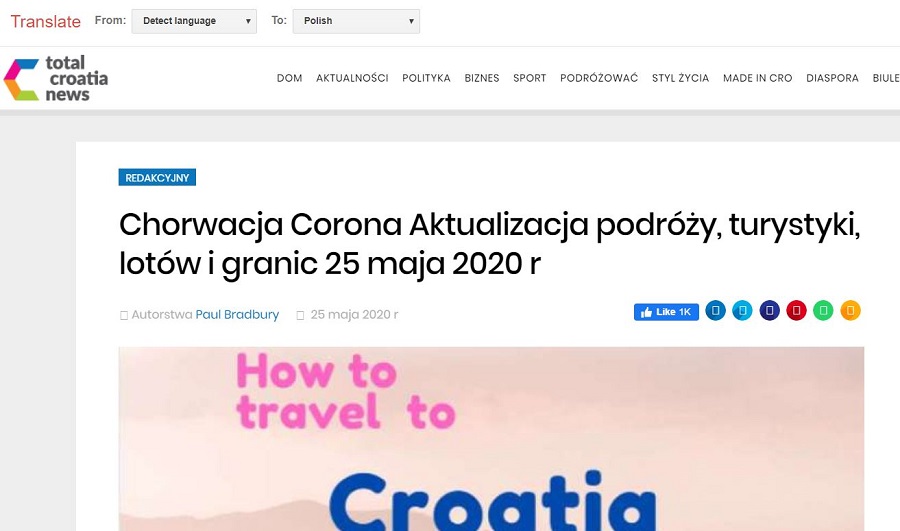How COVID-19 Became a Great Croatian Tourism Promo Gift for USA Market
February 21, 2021 - Last year may have been a disaster for global tourism, but it was a spectacular one for Croatian tourism promo to the USA market, albeit quite by chance.
Sometimes (actually quite often when it comes to Croatian tourism) things happen completely by chance.
Sometimes some good comes from a terrible situation, the proverbial every cloud has a silver lining.
And through the disastrous tourism year of 2020, I noted a recurring theme of hope for Croatian tourism - the most high-profile penetration of Croatian tourism promo into the important USA market.
When ABC News contacted TCN in July wanting to explore filming a feature on Americans travelling to Croatia during the pandemic, I was initially a little hesitant. Promoting travel in July, 2020, particularly from the USA as COVID-19 raged, was bound to upset a few people. My position on corona throughout has been that my opinion doesn't matter, and the more transparent the facts are, the more people can make better decisions.
And while ABC News might have people some people hopping on a plane to Dubrovnik, the bigger impact was likely to be the longer term. A message of welcome to Americans that there is a gorgeous country in Europe waiting to welcome you as soon as they are willing and able to travel.
I decided to get involved and connected ABC News with the best Dubrovnik fixer I know. Kreso Macan once again went above and beyond the call of duty. Ably assisted by Mayor Mato Frankovic and Dubrovnik Tourist Board director Ana Hrnic, the ABC News crew had an unforgettable few days.
And Americans saw and wondered. An estimated 12.5 million viewers tuned in to the feature on Good Morning America, one of six stories featured by ABC News as a result of their visit.
Mayor Frankovic posted on social media to thank ABC for its 'priceless' promotion. The Croatian tourism promo was one thing, but the bigger psychological impact was the message of a welcoming country with pristine beaches and historic towns waiting with open arms. At a time when the world was closed to American travellers, here was a beautiful ray of European sun.
Croatia. Bucket List 2021.
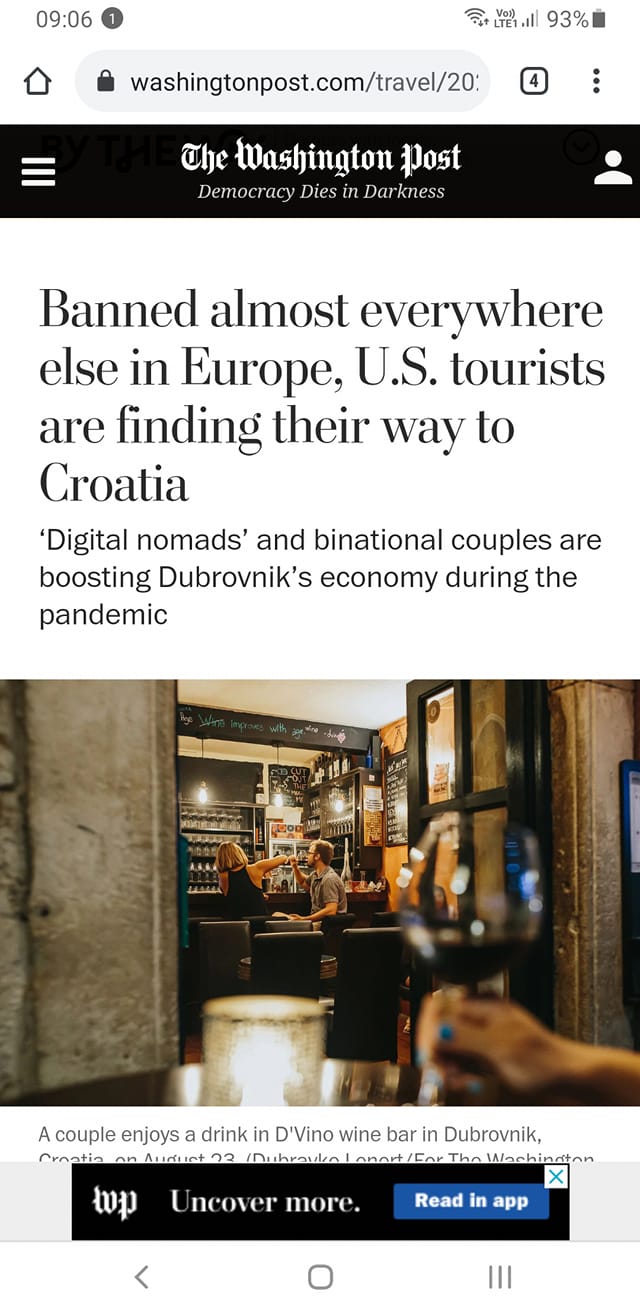
News spread in the Washington Post, not only of Croatia's open approach to Americans, but a new lifestyle tourism opening up in Croatia. Following an open letter from Split-based Dutch entrepreneur Jan de Jong to Prime Minister Andrej Plenkovic, the Croatian PM granted the Dutchman's request just 44 days later - a digital nomad visa for Croatia.
At the time of the announcement, there were only 4 other countries offering such a visa, with only Estonia in Europe. Legislation passed in Parliament, and the new law came into effect on January 1, 2021. The first digital nomad to be approved with the new permit, an American in Istria, gave her first interview to TCN - Meet Melissa Paul, Owner of Croatia's First Digital Nomad Visa.
Here was a country which not only welcomed Americans, but also was opening up for remote worker longterm options.
A country with lifestyle.
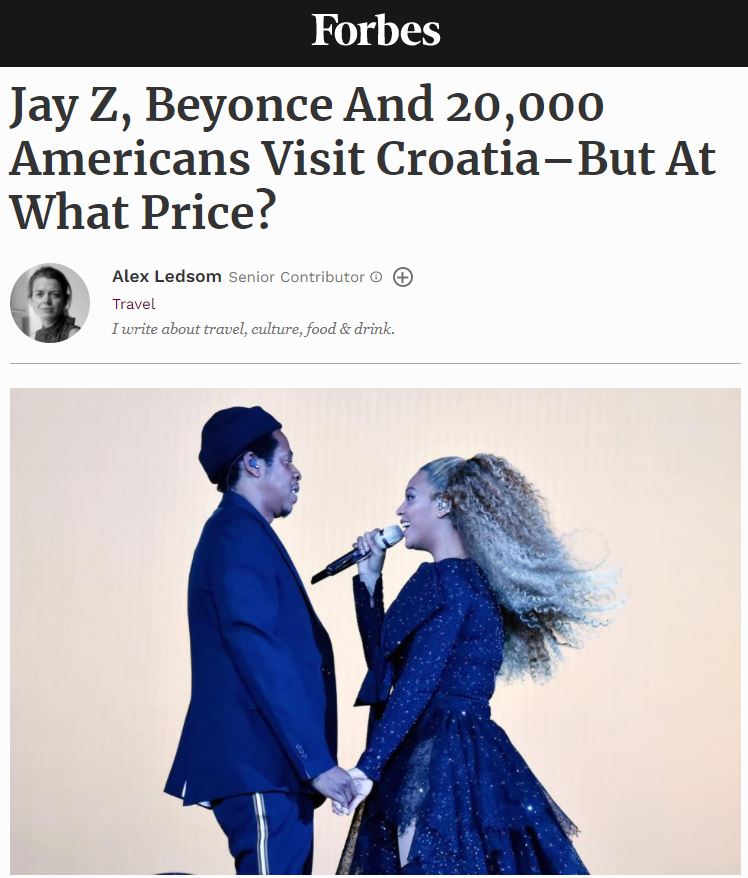
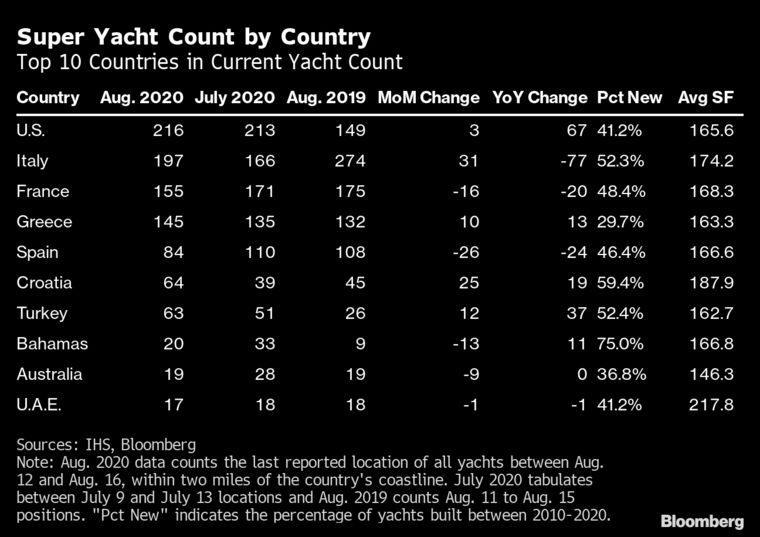
And definitely a rising star in the luxury world of superyachts, reported Bloomberg.
All this during a team when no money was spent on tourism promotion, and a time when a captive audience desperate to travel was being fed glorious Croatian tourism promo material, mostly quite by chance.
As tourism was collapsing elsewhere, Croatia was seemingly pushing ahead with its luxury tourism, according to Forbes, one of many international publications to report on the opening of Maslina Resort on Hvar.
5-star island luxury hotel openings on Hvar or Lopud - take your pick as Robb Report.reported on the outstanding luxury heritage conversion that is Lopud 1483.
Forbes was not the only one to notice Maslina on Hvar - here is Luxe Review.
And that message of 5-star luxury welcome for Americans made it once more to Forbes, this time from Dubrovnik.
And the latest fabulous free Croatian tourism promo to the USA market, as CNN combined all of the above into a great piece focusing on the new digital nomad opportunity, including chats with Melissa Paul, as well as Mexican and Singaporean nomads currently in Croatia.
All this, in a year when people were dreaming of travel, rather than travelling. And the dreams about future travel have been growing as a result.
And there were other pandemic benefits for Croatian tourism promo. With a more muted presidential inauguration on January 20, lesser stories assumed a greater prominence. This included a fantastic promotion of Croatian wine, a story which first appeared online in English on TCN on January 9.
The New York Times got in on the act, this time looking at the luxury real estate opportunities in Croatia. There seemed to be two clear messages emanating from all this promotion - luxury and lifestyle.
Perfect for the American market.
I spoke with Ina Rodin, Director of the Croatian National Tourist Board in New York, asking her for her thoughts:
The past year has been a challenging one for the travel and tourism industry. Croatia, no stranger to hardship, in addition to an unprecedented global pandemic experienced a series of devastating earthquakes. Despite these challenges, the country deftly navigated these crises. The government made bold decisions to keep borders open, a strong and strategic move which kept the country on the radar of US travelers, a move that US-based media such as Forbes, Afar, and ABC News to name a few, covered positively.
As a result, despite travel restrictions and reduced air accessibility, Croatia had a respectable number of visitors from the States. Furthermore, the recent introduction of the digital nomad visa program was timely and contributed to the country’s positive perception from people abroad. The effort to ease requirements to work and travel is a fail-safe plan for long-term tourism growth and should create more progressive and inspiring environment for both locals and visitors. We hope these new programs will provide a fresh perspective to our tourism strategy.
While most of the above promotion happened organically, one of the bigger challenges of the 2020 season lay with the Zagreb Tourism Board - what to do with their globally popular December event, Advent in Zagreb? With fluctuating restrictions and travel shelved by many, any event would be markedly different to its predecessors, but it was also important to keep the story and the brand going. Which it succeeded in doing, being featured once more as one of the best Christmas markets in Europe by Conde Nast Traveler.
I asked Martina Bienenfeld, Director of the Zagreb Tourist Board, how it went:
Last year was the most challenging for everyone and especially for us in the travel industry. Zagreb Tourist Board transformed challenges into opportunities that resulted with new projects. By adapting to the situation, we created new virtual and hybrid contents.
Having that in mind while preparing Advent Zagreb 2020, we created an interactive augmented reality exhibition called Virtual Christmas Windows which brought a whiff of holiday spirit using the animated motifs of Advent. The other novelty was a project and a campaign called The Light of Advent where we initiated festive decoration of windows of 10 public institutions in the Upper Town. We also invited our citizens to send us their Christmas photos and, as a result of the campaign, we had a reach of more than 230,000 people, 240,000 impressions and we received over 300 photos which can be seen in #ZagrebLoop video on www.adventzagreb.hr .
The other new feature was the Zagreb Manger, a virtual exhibition of photographs of Nativity Scenes in churches, taken from 2007 to 2019. Furthermore, during December we organized hybrid activities with live streaming of advent concerts on our online channels. The implementation of digital innovations helped us create unique virtual and interactive content throughout the whole year 2020. Pandemic showed us that now, more than ever, we need cooperative efforts, support and mutual trust of all the stakeholders in the tourism industry. Tourism brings people together and in spite difficulties that came upon us, I’m sure that we will build new memories together again
2020 was a year to forget for tourism in general, but a year to remember for Croatian tourism promo to the USA.
Let's hope 2021 can be the year when Croatian tourism and Croatian tourism promo shine in tandem. In order to remind our American readers, luxury tour operator Secret Dalmatia just released the first in a series of great videos promoting the magic of Croatia that awaits you when travel returns to normal.
For more on travel in Croatia, follow the dedicated TCN section.
New Student Intern Positions at Total Croatia News: Apply Now
February 13, 2021 - Looking for some practical experience at the beginning of your journalism career? Two student intern positions are available at TCN.
About 18 months ago, I was invited to address journalist students at the Faculty of Political Science at Zagreb University on the realities of running a news portal in the modern day.
It was something that had never done before, and I didn't really know what to say, but I thought it could be an experience and perhaps an opportunity to develop closer ties with the university in some way. The idea of TCN student intern positions came up, and the more I thought about the idea, the more I liked it. We had something to offer in terms of real experience on the ground, and the youthful enthusiasm of students with actual journalistic training (unlike this self-starting blogger) was also appealing. Being able to reach a young audience also had its appeal. I wasn't quite sure what the internship would entail in practical terms, but I was open to the idea.
The first rule of addressing students at a seminar is never do it in the morning. I was curious to see how many would attend the 09:00 seminar as I drove into Zagreb from Varazdin for the session.
The answer. Just nine. Not a huge crowd, but perhaps there would be a gem in there somewhere, and maybe we could inspire some of the nine. Maybe one might even want to become an intern with TCN. You can see the whole presentation in the videos above and below.
The students' professor, Gaj Tomas, who invited me in the first place, gave the students an assignment to write about their impressions of the seminar. And then my inbox started to fill with first one, then two, and finally three applications to join the intern programme. Three from the nine was a good result.
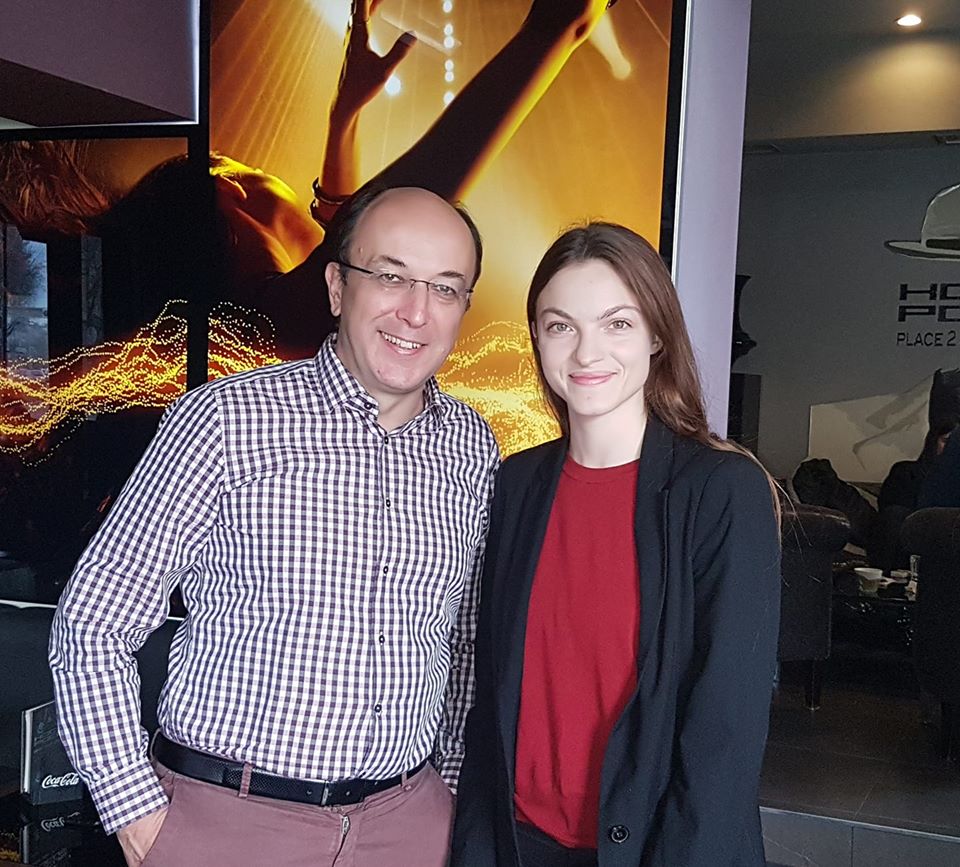
And so off we started, on a journey which was as much an adventure into the dark as it was for me. They were taught to take over certain social media responsibilities for TCN, which they did much better than I ever did. Paula was into politics, and political guru, Kresimir Macan kindly met her for a coffee to give her some guidance and contacts. Within two months, Paula was published in the UK, earning her first journalist funds, co-authoring a feature on the upcoming Croatian presidential elections.
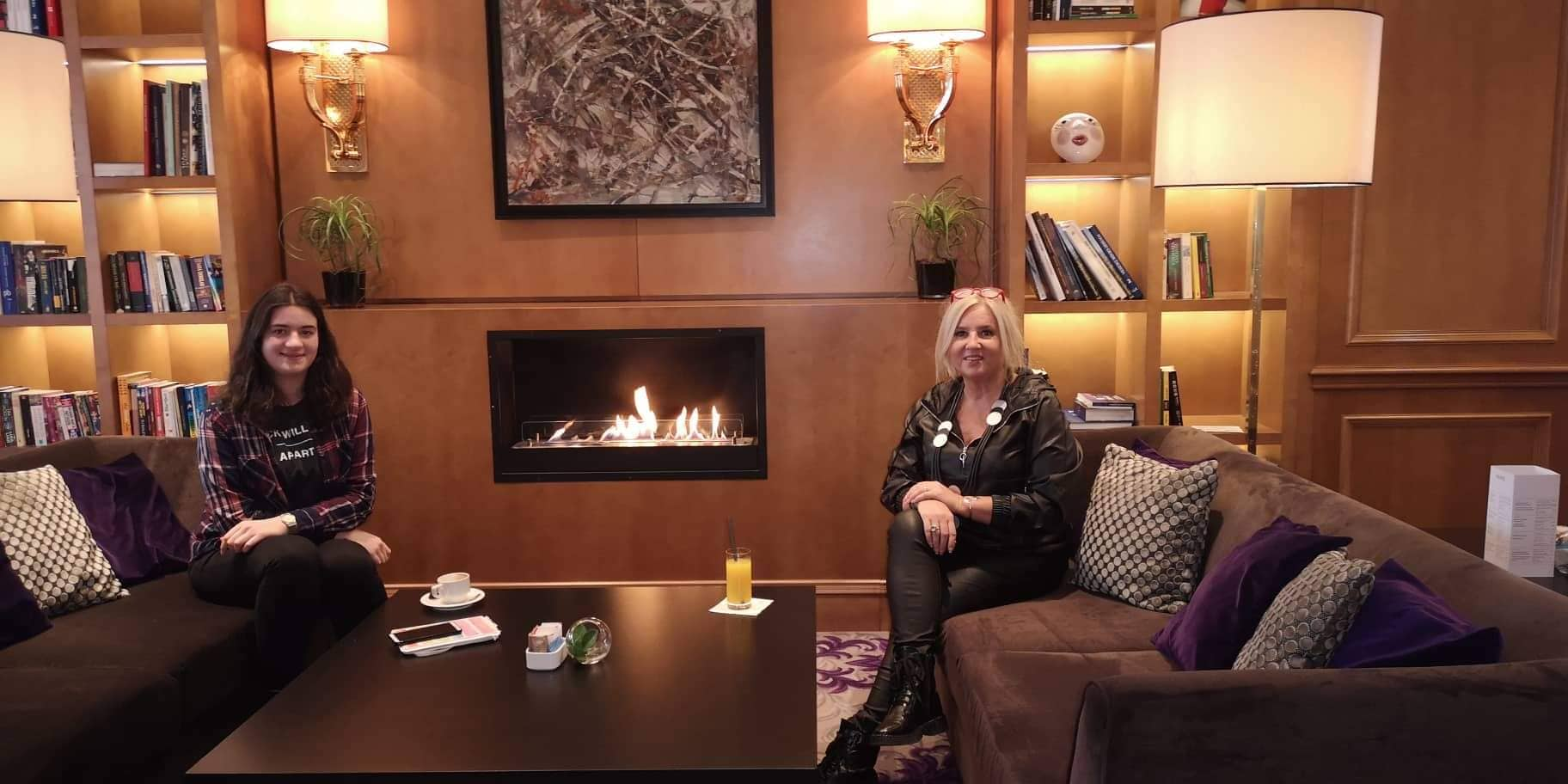
Ana was more into film, and who better to meet and interview than legendica Spomenka Saraga, award-winning film producer and the driving force behind Zagreb Tourfilm Festival.
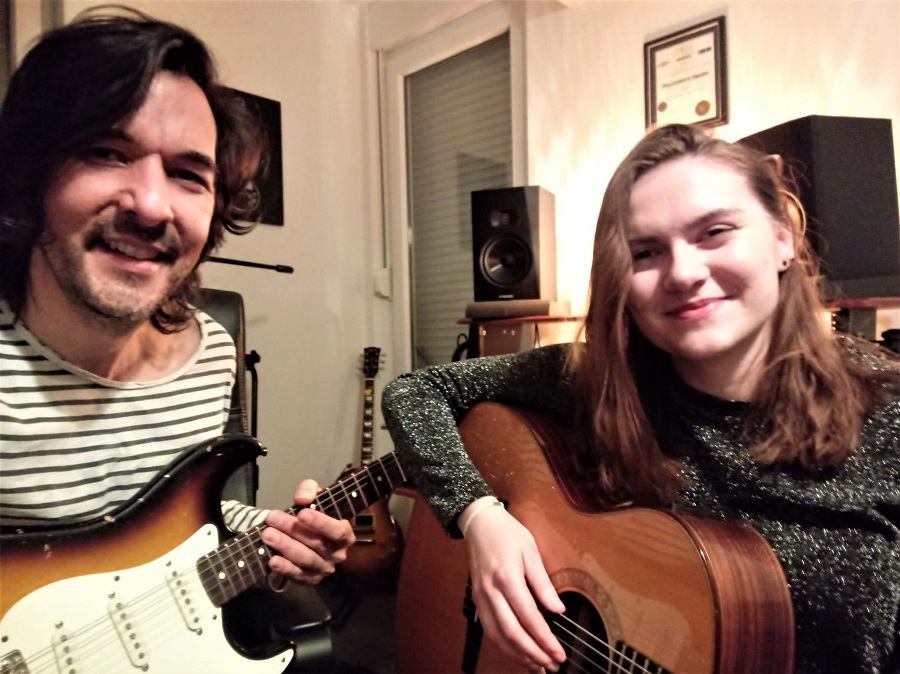
While Janja got to hang out and jam with guitar legend Yogi Lonich.
Paula and Janja went on to cover Dora 2020 for TCN, with Macan helping to arrange some backstage access for them to interview the winner. They were certainly having more fun than I was, stuck in the office all day.
Janja joined us full time on a student contract over the summer, before returning to university to resume her studies. She was joined by recent graduate Donatella, who started with a 3-month internship with TCN, and is now employed as a full-time member of the team.
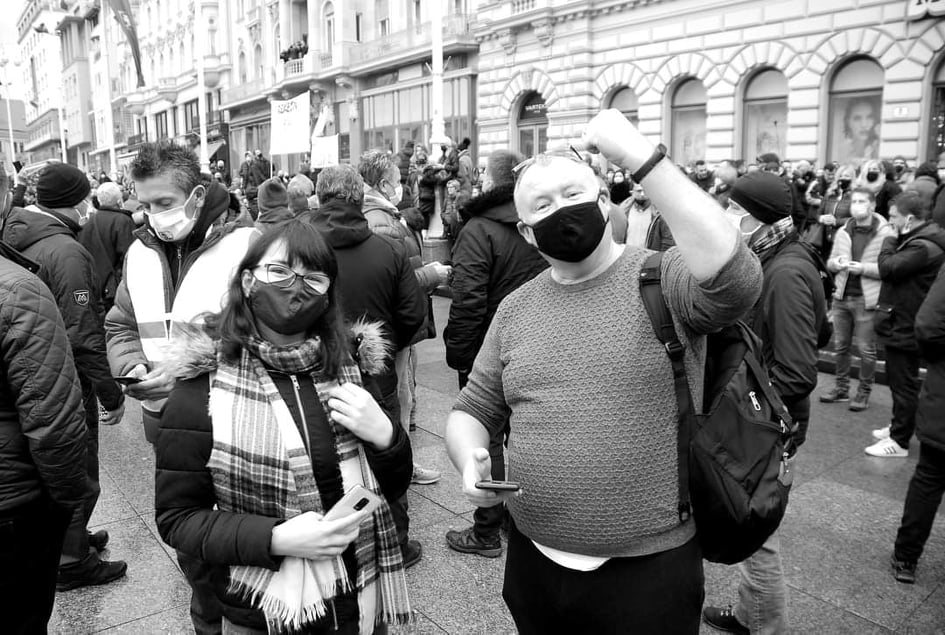
Donatella accompanied me to her first ever protest recently, the UGP Voice of Entrepreneurs gathering on the main square (and yes, she is a much tidier dresser than me). Here are her impressions in My First Protest: What I Learned at UGP Entrepreneur Protest in Zagreb.
Now that she has graduated, I am looking forward to helping her develop new ideas from the younger generation, and I am really excited to follow her new series starting this weekend - Croatian Graduate Perspective, interviews with recent graduates about the challenges of starting out in the big bad world in Croatia during a pandemic. You can read her first interview with Karla in Split, which has just been published.
TCN currently has two student intern positions available for anyone interested. We are happy to look at candidates from all over the country, as we are keen to represent as many parts of Croatia as we can. So if you are a student in Split, Osijek, Pula, Dubrovnik, Rijeka, Varazdin or elsewhere and would like to come and get some hands on work experience to contrast with the theory of the lecture hall, get in touch.
We are looking for enthusiastic students with excellent English, plenty of initiative, with good social media and video skills. The internship will be a mixture of some of the more mundane aspects of running a portal, such as admin and social media, as well as plenty of work in the field, as well as time with TCN staff. If interested, please contact me at This email address is being protected from spambots. You need JavaScript enabled to view it. Subject Internship. Please include a CV, 400-word article on a topic about Croatia you feel passionate about, one fun fact about Croatia that most people don't know, and the name of the person you would most like to interview in Croatia (and we will try and make it happen). Deadline for applications - February 25.
I asked Janja and Donatella to write a little about their experiences at TCN, to give you an idea of students who tried the internship and lived to tell the tale:
Janja - When I first applied for TCN, I wasn't aware where exactly this journey will lead me. I'm not sure even now, but I am enjoying the path. I love the opportunities which TCN is continuously giving to us. I like the freedom of choosing my own articles and also seeing that Paul is encouraging us to do so. One of the brilliant things is how easy you can reach the person you want to talk to or go to an event you want to cover. Also, a relaxed atmosphere, quality humor, and understanding people are wonderful things to have around. It is a pretty rare thing to find, especially in a working environment. We are just a few months into this internship and have already had so many positive experiences, so I am very happy.
Donatella - A year ago, I returned from my five-month student exchange in Italy, where I studied at the University of Bologna. Delighted by this international experience, as a final-year journalism student at the Faculty of Political Science in Zagreb, I had another desire – to participate in a student internship abroad. However, the coronavirus pandemic ensued, so some of my priorities changed. When I had almost come to terms with the fact that I would not experience a student internship during my college education, I saw one post on Facebook that piqued my curiosity.
Total Croatia News, a news portal dedicated to Croatia, was looking for a student intern. As I wanted to continue improving my English language skills, as well as to start my career in journalism, an internship for Total Croatia News seemed like an excellent opportunity to start. I applied, passed the interview, and soon became a TCN intern. Although the internship was in Croatia, considering the circumstances with the coronavirus pandemic, I was happy and grateful even to be able to do an internship.
As the nerd that I am, I enjoyed learning to write news articles in English from my English-speaking colleagues. From week to week, I was getting new assignments, and the one I found most exciting was managing TCN's social media accounts. Social networks are one of the main tools in business today. Although I've been learning about it during my studies, I gained the biggest knowledge through concrete, practical experience on TCN.
After two and a half months of learning and working, driven by great dedication, I was given the opportunity to become a permanent part of the TCN team, which I by no means wanted to miss. When I look back, I realize that I stepped out of my comfort zone by applying for an internship and pushed my boundaries to where I didn't even know I could go. And so much is still ahead of me.
If you would like to discuss the internship before formally applying and would like to know more about it from Janja or Donatella, please contact me and I will put you in touch.
After Digital Nomads, Will Croatian Tourism Chiefs Act on 4 More Gifts?
Two small but very significant things for Croatian tourism happened in one Facebook post just before Christmas.
The post was by arguably the most communicative senior member of the government on social media, State Secretary for Tourism, Tonci Glavina, who regularly updates his followers on good news regarding Croatian tourism and government activity, communication which is very welcome.
And Glavina's status update of December 23 caught my attention in particular, for two reasons, and opens a small window of opportunity for progressing tourism strategy in Croatia:
The post was significant firstly as this was the first time (to my knowledge) that a senior government official had given a concrete statement on the reality of the Croatian digital nomad visa since Prime Minister Plenkovic tweeted his intention in late August to act on a LinkedIn open letter from Dutch entrepreneur Jan de Jong asking for the introduction of a digital nomad visa for Croatia. As regular readers of TCN will know, digital nomad tourism is something we have been advocating for more than 18 months now, as well as reporting on progress on the visa every step of the way, from the law changes in the Aliens Act and the tax code. You can follow the TCN digital nomad coverage past, present and future here. Having a senior government official confirm what we have been reporting for months is most welcome, as is the additional news that Glavina brought that there will soon be a big global promotion by the Croatian National Tourist Board to attract digital nomads to Croatia.
The second thing that was significant in Glavina's post was his acknowledgment that this was an initiative from the private sector, namely the efforts of de Jong and those supporting his initiative. I have long advocated for the private sector to play a more active role in shaping Croatia's tourism, simply because the private tourism sector understands tourism so much better than those running Croatian tourism (in my opinion), and in many cases they manage to succeed in spite of official tourism strategies, rather than because of them. So to see the Croatian tourism chiefs not only recognise a private sector initiative but to make it a key theme for 2021 promotion is a very encouraging development indeed. And one I hope will be a precedent for future development.
National tourist board director was also ebullient about the prospects of digital nomad tourism and was quoted in Vecernji List, timeline December 23, 2020:
We plan various activities to position our country as an attractive destination for digital nomads. The focus of marketing campaigns will be on the fact that Croatia can guarantee a safe and quality stay for digital nomads. We will emphasize the excellent transport connections and the geographical position of an EU country in which many speak English and which has an excellent infrastructure and quality of offer. In the promotion, we will focus on the fact that our life is accessible according to European standards, that we have good health care with well-known benefits such as a favorable climate, beautiful nature and rich cultural and historical heritage. At the beginning of 2021, an online campaign is planned in Great Britain, the USA and Australia, and we will soon start teaser activities, ie posts with initial information about the legislative changes on social networks Facebook, Twitter and LinkedIn - says the director of the Croatian Tourist Board Kristjan Stanicic.
This is all wonderful (and I mean that sincerely), but I have a question which is important if we are to develop this concept of public-private cooperation:
If de Jong had not posted his online appeal to Plenkovic, and if there had been no private sector initiative regarding the digital nomad visa, would our Croatian tourism chiefs even be talking about digital nomads as a tourism strategy?
A few weeks before de Jong posted his LinkedIn request, I request a meeting with the national tourist board to present three new initiatives for Croatian tourism. The three ideas were a concept to brand Trogir the first digital nomad town in Croatia, a new sporting event to celebrate Dalmatia's unique sporting heritage and tradition with the Olympics of Traditional Dalmatian Games, and a concept for developing religious tourism based on the only certified miracle in Croatia, the Eucharistic Miracle of Ludbreg.
I left the meeting empty-handed but with plenty to think about. Funding rules had changed and I was advised to approach regional tourist boards on the financial side. And while I was more than a little surprised that one of the senior tourist board members couldn't name Croatia's only miracle, it was the reaction to the digital nomad project that stayed with me. While my Trogir idea was apparently good, I was advised to check on taxation rules for nomads planning to work in Croatia. With the situation as it was, it was not something that they could officially promote.
And that, I believe, is how the situation would be today without de Jong's initiative and all that followed.
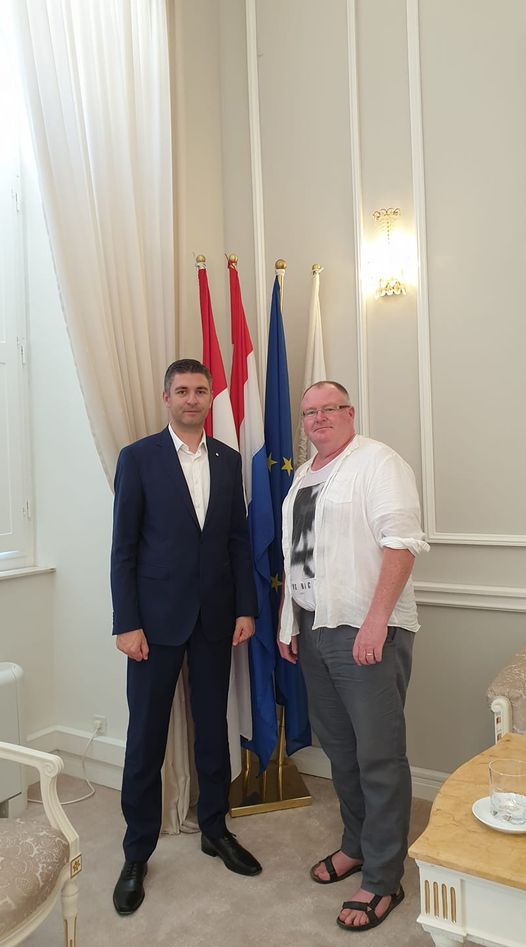
Private initiatives to promote digital nomad tourism continued, and there were more receptive ears. None more so than Dubrovnik, who not only embraced the concept, but acted on it very quickly. After a very cordial meeting with Mayor of Dubrovnik, Mato Frankovic, in July, wheels were set in motion to prepare for an international digital nomad contest to work with the city on improving its digital nomad offering and branding.
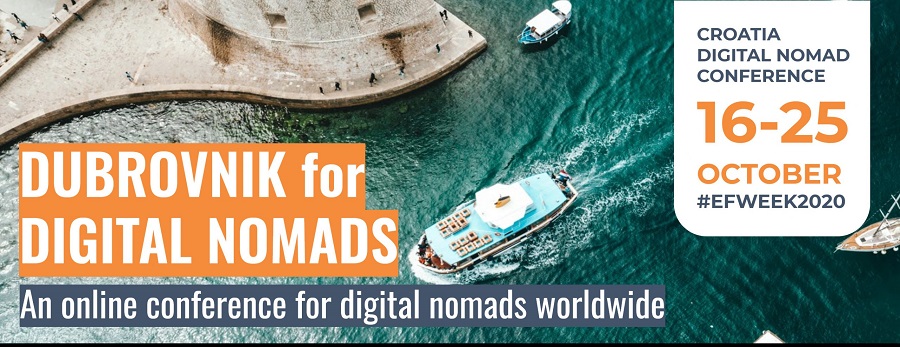
Corona budget issues have delayed that project until April/May 2021, but Tanja Polegubic from Saltwater Nomads suggested Dubrovnik start the discussion by organising Croatia's first-ever digital nomad conference, Digital Nomads for Dubrovnik, in October, in partnership with the Dubrovnik Tourist Board, City of Dubrovnik and TCN.
News of the imminent visa and the Dubrovnik conference caused quite a buzz internationally, and there were many articles in the international media about Croatia as a new hot spot for remote workers, with the Dubrovnik for Digital Nomads conference even getting a mention in the Washington Post.
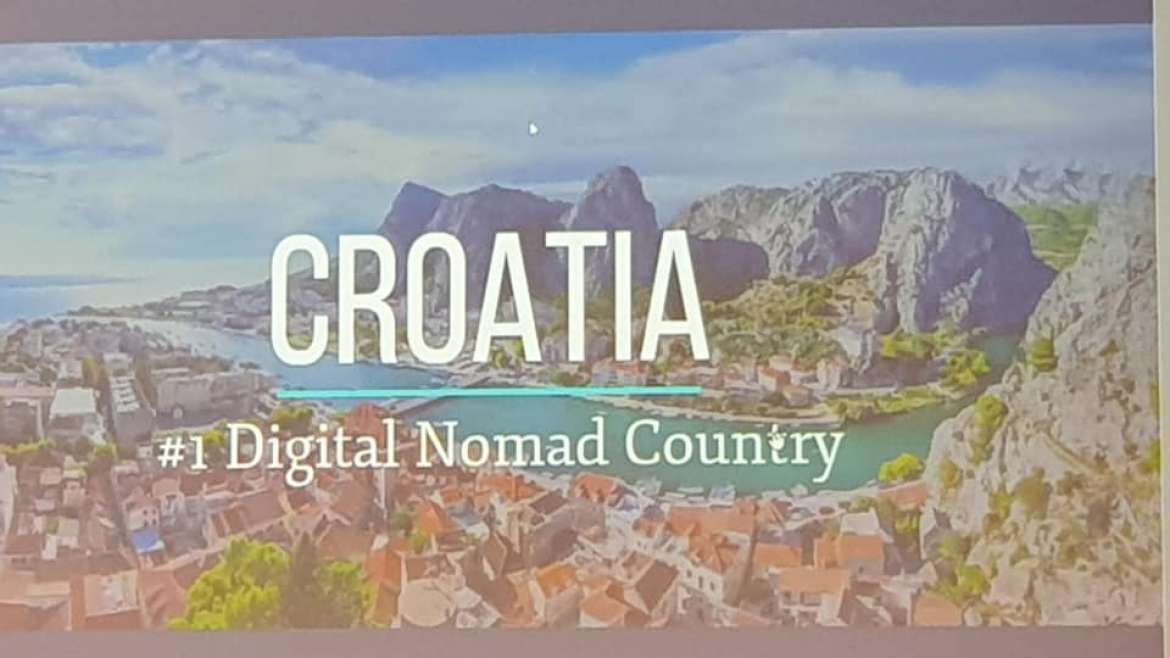
And there was plenty of more niche promotion within the digital nomad community, with TravelOffPath co-founder Kashlee Kucheran, a website and community dedicated to global travel information for remote workers, extolling the virtues of Croatia as a destination for digital nomads - you can learn more in this TCN interview with Kashlee.
Zagreb has also been very receptive to the digital nomad opportunity. Sadly, we had to cancel plans for a Digital Nomad Bootcamp as part of Advent in Zagreb due to the pandemic, but we will be announcing a great initiative in partnership with Zagreb in the new year.
And yet, despite all the activity and December 23 announcement and upbeat quote from Director Stanicic, not a single word about this new tourist sector on the national tourist board site. This is what greets you when you search the national tourist board website for information about digital nomads (see above).
The main point of this article is to show how important the private sector is for tourism and what a positive effect it could - and should - have, and so it is worth taking a closer look at the origins of this initiative, as well as looking at others which may exist. As Jan de Jong has explained, he is also quite new to the concept of digital nomad tourism. Back in May, he was due to speak at a tourism conference and asked me for some advice about tourism initiatives. I sent him a few articles to read including two about digital nomad tourism, both written in mid-2019, a full 18 months before Director Stanicic's enthusiastic embracing of his new initiative.
How Croatia is Becoming Increasingly Attractive for the Digital Nomad Lifestyle (June 19, 2019)
Branding Croatia for the Future: 5 Gifts and Trends to Focus On (June 9, 2019)
If these articles planted a seed in de Jong's mind regarding digital nomad tourism, who in turn planted a seed in the Prime Minister's mind with his LinkedIn post, who in turn planted more seeds for Croatian tourism chiefs, which results in a visa and strategy for digital nomad tourism for Croatia, then I will be very happy. There have been lots of people involved from the private sector on the way as I explored in Croatia's Digital Nomad Visa Story: The Expat Contribution.
The big question is that if this approach of private initiative which is helped along the way with a collection of different skillsets and influences can be embraced by the Croatian tourism chiefs, are there any other such ideas which could yield similar fruit? And the answer is an emphatic YES! Here are just 4, and let's go back to that 2019 article, Branding Croatia for the Future: 5 Gifts and Trends to Focus On.
1. Medical Tourism
One sector which is a real growth opportunity for Croatian where the private sector is trailblazing is medical tourism. It is an area I have written a lot about in the last three years, not only about Croatia, but also internationally, and it was a real honour to be named International Medical Travel Journalist of the Year in Kuala Lumpur recently by one of the star performers of the global medical tourism industry - the Malaysia Healthcare Travel Council.
I have attended several conferences, both national and international, and interviewed many of the bigger names in the medical tourism industry over the last few years. I have been constantly struck by how big the potential is for Croatia, whose reputation within the industry is very high, so at odds with the delivery of effective official promotion. At the same time, the private medical tourism companies are achieving great visibility and partnerships in order to develop not only their only clinics and hospitals, but also the Croatian industry as a whole. It is quite telling that the brand of the Kvarner Health Cluster has a bigger brand within the industry than Croatia as a national brand, for example.
Unlike digital nomad tourism, which as we have seen has yet to get a mention on the official website despite the apparently lofty plans for 2021, there have been sporadic - and particularly ineffective - efforts to officially promote medical tourism. The video above is a case in point - dating back to 2017. Some pretty drone shots of Croatia and some footage in some clinics, but with no coherent message, and with almost no engagement - 43 likes and zero comments despite over a million views suggests another paid campaign that failed to engage.
Fast forward two years and a shiny medical tourism conference called Health Spot Croatia.
All the big names were there in terms of sponsorship, and the list of speakers was no less impressive as an official show of strength.
No less than two ministers, the president of the Croatian Chamber of Economy and Mayor of Zagreb in the welcome speeches alone.
And the dividend from the conference once the lights went off, the initial column inches written? Very little. Indeed my understanding is that the health tourism department of the Ministry of Health was disbanded earlier this year.
Meanwhile, in the private sector, Croatia is excelling on the global stage, working with the biggest names in healthcare.
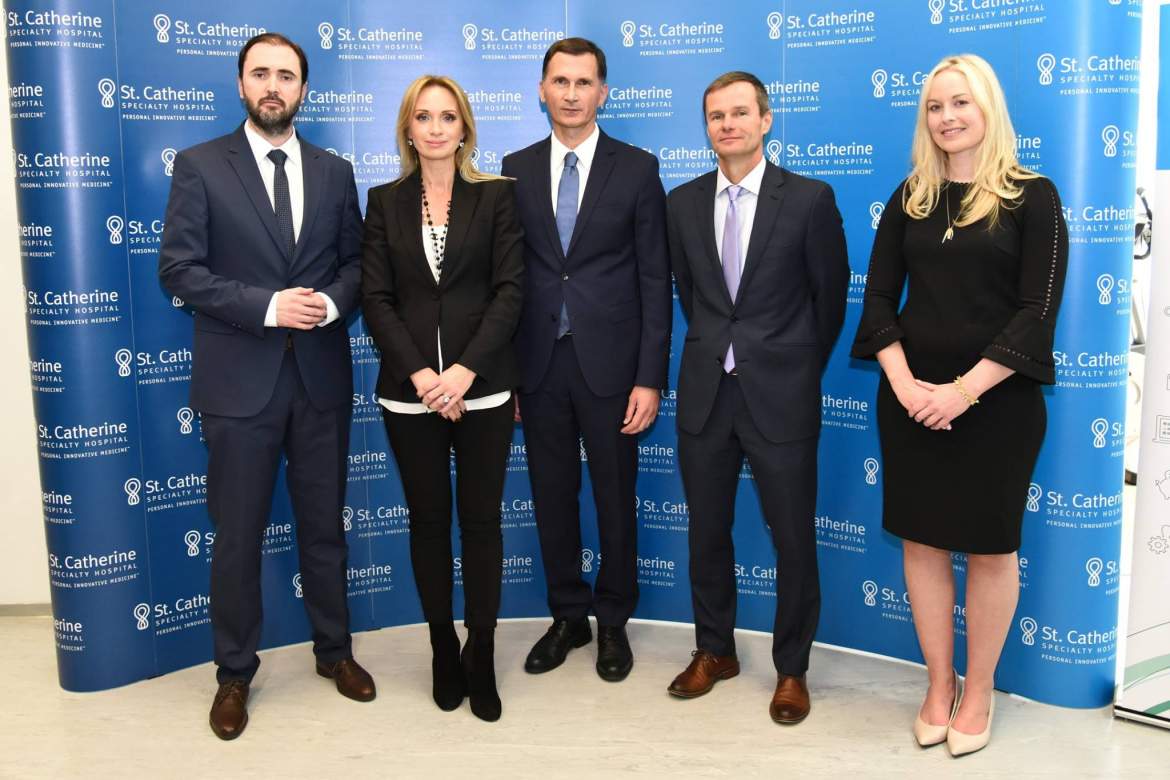
St. Catherine's Specialty Hospital, a member of the Leading Hospitals of the World, became the first place in Europe to offer the RightMed OneOme pharmacogenetic test, developed in partnership with Mayo Clinic.
Cleveland Clinic has also been taking an interest in the Croatian medical tourism story after links were forged by Ognjen Bagatin of Bagatin Clinic on a visit to Cleveland. Cleveland Clinic CEO Tom Mihaljevic pledged his support for perhaps the most ambitious initiative to put Croatian medical tourism on the map - EPIC 2020.
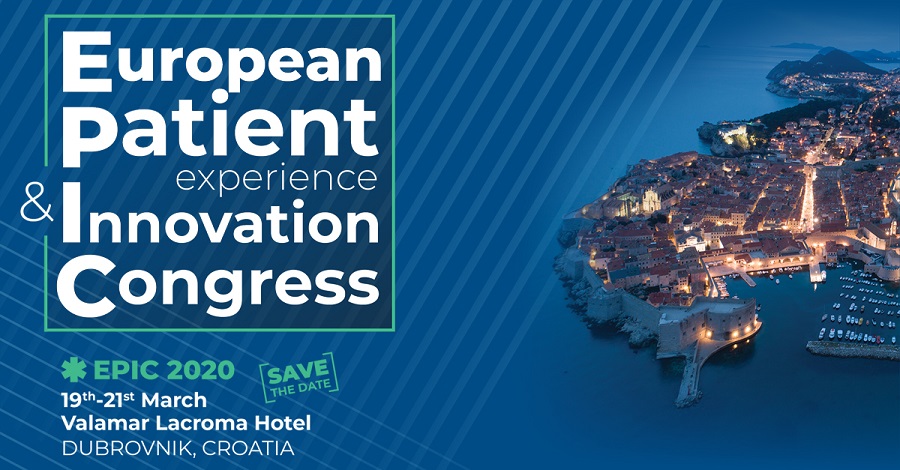
But for the pandemic, EPIC 2020 would have been Europe's first European Patient Experience and Innovation Congress, organised by Bagatin Clinic in collaboration with Cleveland Clinic, with a world-class list of international speakers, including several from Mayo and Cleveland Clinics.
Bagatin Clinic has become synonymous with Croatian medical tourism excellence globally, thanks largely to the extraordinary efforts of Ognjen Bagatin, who has travelled the globe several times over to promote Croatia and its health tourism story. He has done more than perhaps anyone to develop this sector of Croatian tourism, as well as being an authoritative and inspirational speaker on the global level. It was a pleasure to witness him collect the award on behalf of Bagatin Clinic for Best International Cosmetic Surgery Clinic at the International Medical Travel Journal awards and conference in Berlin in 2019. IMTJ is the leading medical tourism conference in the world, attracting exhibitors from all over the world. While official promotional bodies were out in force from the biggest countries in the industry, including South Korea, Malaysia and Germany, the Croatian presence was limited to Bagatin and the Kvarner Health Cluster.
Unlike digital nomad tourism, which is just in its infancy, there is considerable experience and expertise in the private medical tourism sector in Croatia, as well as a vision and international credibility. If de Jong's private initiative for digital nomads could be replicated for the medical tourism industry, the possibilities are enticing indeed.
2. Lessons from Portugal - retirees and the Golden Visa.
A little legislation change is what is required to bring in the digital nomad visa, thereby making Croatia more accessible to remote workers to come and live in Croatia and contribute their spending power to the Croatian economy.
And a little more legislation change in another area could also boost the State coffers. With its temperate climate and relaxed lifestyle, Croatia is an ideal destination for pensioners to spend at least some of their retirement time. The lower cost of living compared to Western countries also makes Croatia an attractive option.
Just as I have come across many digital nomads from outside the EU looking to spend more time in Croatia, so too people wanting to retire and spend time here.
And spend money. As Portugal has figured out, retirees looking to relocate to the sun are independently wealthy and not going to take away and local jobs. And they tend to have affluent friends and family who come to visit. The Portuguese Golden Visa programme has been a big success, something which can easily be emulated by Croatia - Lessons from Portugal: Taking Advantage of the Retirement Lifestyle Opportunity.
3. Wine - Home of Original Zin and 130 Other Indigenous Grape Treasures
You will not be in Croatia long before you hear about how great the wines are. And they truly are. Home of the original Zinfandel and 130 other indigenous grape varieties, Croatia also offers some very diverse wine regions and exceptional tasting experiences. With the popularity of gourmet tourism in France, Spain, Italy and Germany, the potential for Croatia to present its world-class food and wine offering is there. After all, didn't the late, great Anthony Bourdain wax lyrical about Croatia's "world-class food, world-class wine, world-class cheese" back in 2011.
And yet...
Where to go to find the information about the wine roads and wine tasting experiences?
Dalmatia may be the home of original Zinfandel (a FANTASTIC hook for the American market in particular), but there is no Dalmatian wine road. In fact, trying to find information about any wine roads is rather a challenge. A few years ago, I asked the national tourist board to send me a list of wine roads for Croatia. They were very helpful saying that they did not have that information but would contact the county tourist boards individually and get the information of wine roads by county. They did send information on all but one county, in varying degrees of quality, but mostly it was just a list of names. Which was better than the help from the Ministry of Tourism, who insisted that there was a map of the Biokovo Wine Road, a wine road which no wine professional in Croatia I have spoken to knows ever exists.
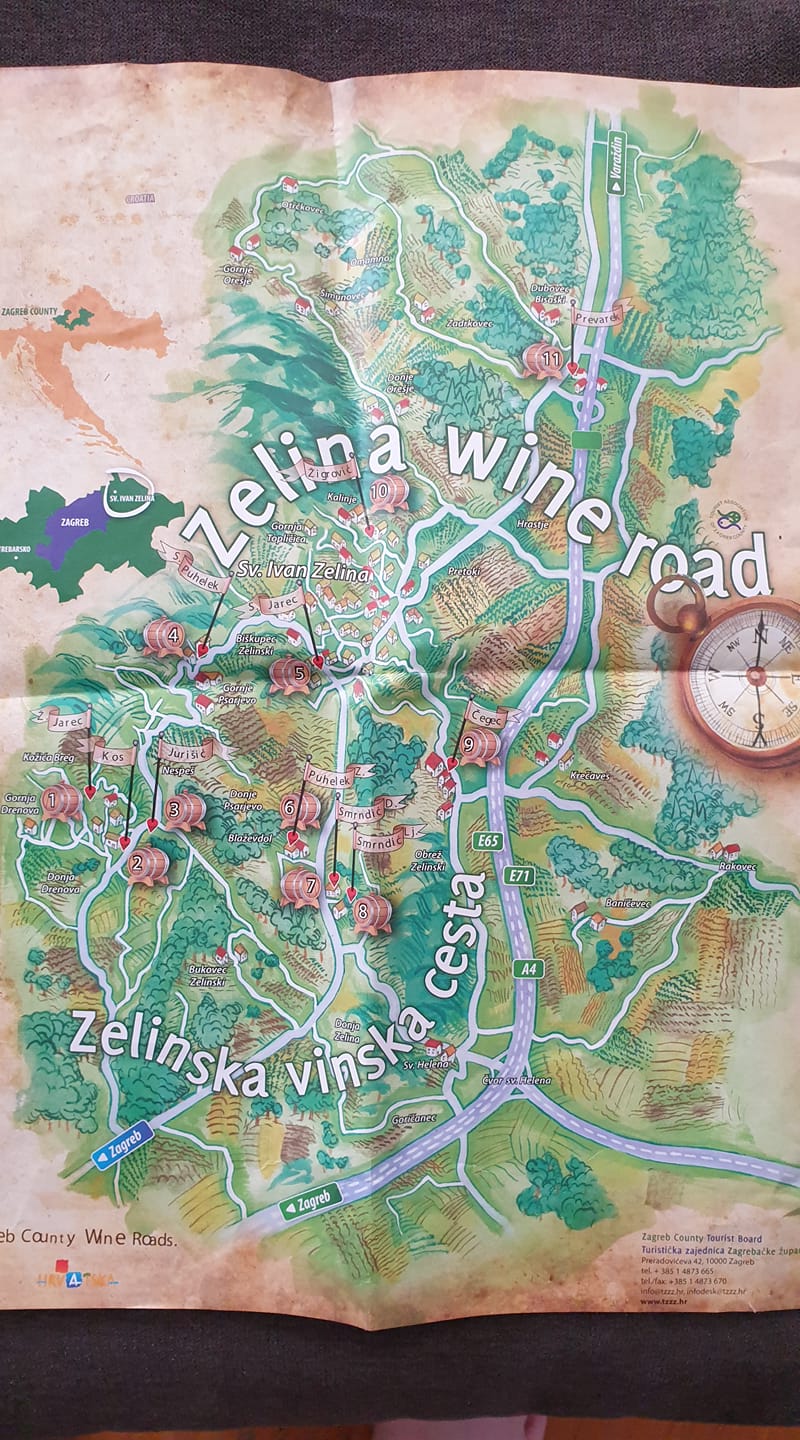
That is not to say that it is all bad. I was much cheered on a recent visit to the Zagreb County Tourist Board to come across this very useful map for the wine lover. On the one side, a map of the 11 wineries on the Zelina wine road, and on the other all the contact details, opening hours and tasting experiences on offer, details which you can also find on the official website.
How hard would it be to do this on a national level, and to put up some signs for wine roads on a national level? To actually make finding information about wine roads and wineries user-friendly? There are signed wine roads at a local (and sometimes regional) level, but it Croatia wants to be taken seriously as a wine destination, it should start taking its wine promotion seriously. Need some help? Lessons from Macedonia: How Croatia Can Learn How to Market Wine. Interestingly, Macedonia's biggest export market is... Croatia.
4. Maximising the Tesla (and Rimac) brand
Was Nikola Tesla a Serb or a Croat? If you are looking for the answer in how he is promoted in both countries today, then there is no contest. Despite visiting Belgrade only once, the international airport bears his name, and Serbia celebrates Science Day each year on his birthday, July 10.
By contrast, the birthplace of Tesla, the village of Smiljan in modern-day Croatia near Gospic, is a very humble affair, and a great opportunity for Croatia which is currently very underutilised. As I wrote in my 2019 Branding Croatia article:
From Tesla to Rimac - the home of clean energy and innovation
Nikola Tesla was a genius, whose inventions transformed the way we live. He was also an ethnic Serb who was born and grew up in the village of Smiljan, in which is today modern Croatia. Tesla only visited Serbia once, and yet Belgrade named its international airport after him. Meanwhile in Croatia...
Smiljan is a lovely spot, with plenty of space. As Telsa's birthplace, it is also the symbolic home of the Tesla revolution. So let's give people a product to match that potential, an Old Trafford Theatre of Dreams for the e-mobility generation. I have been fortunate to have taken part in the Nikola Tesla EV Rally a few times. One of the undoubted highlights of the trip for these Tesla car converts is a visit to Smiljan, a chance to pay homage to Nikola Tesla and where it all began.
Looking forward, as branding Croatia should be doing, something like 75% of tourists to Croatia arrive by car. By 2030, there will be 21 million new electric vehicles on Europe's roads. From a tourism and economic viewpoint, it would make sense for Croatia to be at the forefront of the e-revolution, but with a gift of the Tesla birthplace, a brand to build on and develop for sure. Especially when Croatia has a modern-day Tesla in the shape of Mate Rimac, whose electric supercars and technology is taking the world by storm.
The energy this year to push the Croatian digital nomad story forward has been inspiring, as well as encouraging. If Croatian bureaucracy really can work that fast, and if the Croatian tourism chiefs really can react to private initiatives such as de Jong's visa proposal, then it can do the same in other sectors, for the ultimate benefit of tourists, tourism providers, and the Croatian economy. So with the digital nomad box almost ticked, can we now turn our attention to legislation for foreign retirees, empower the medical tourism industry to realise its vision, coordinate a unified and comprehensive introduction to Croatia's wine potential, or raise the level of Nikola Tesla promotion to the level the great man deserves?
As with the nomad visa, none of these is overly taxing, and the benefits for Croatia will be considerable.
A Foreigner Reflects on a Decade Writing about Life in Croatia
October 30, 2020 - A decade is a long time in online writing, especially when life in Croatia is the topic. Some reflections of a foreign blogger writing about life in Croatia over the last ten years.
I remember it as though it was yesterday, even though the spinning wheel of time tells me it was ten years ago this week.
A chill in the dark late winter air on the main square in Jelsa, I the only person outside, the numerous locals huddled in their coats in the warmth of the cafe interiors.
I had just written my first ever article online - Driving in Albania - Not for the Fainthearted - for a now-defunct website in Canada called Suite 101, and I was anxiously waiting for my new editor to approve my piece so that I could start yet one more career in my random passage through life. Male chambermaid, bellboy, laser crystals salesman, humanitarian aid worker, wine merchant, French and English teacher, real estate agent. And now the latest metamorphosis - online writer.
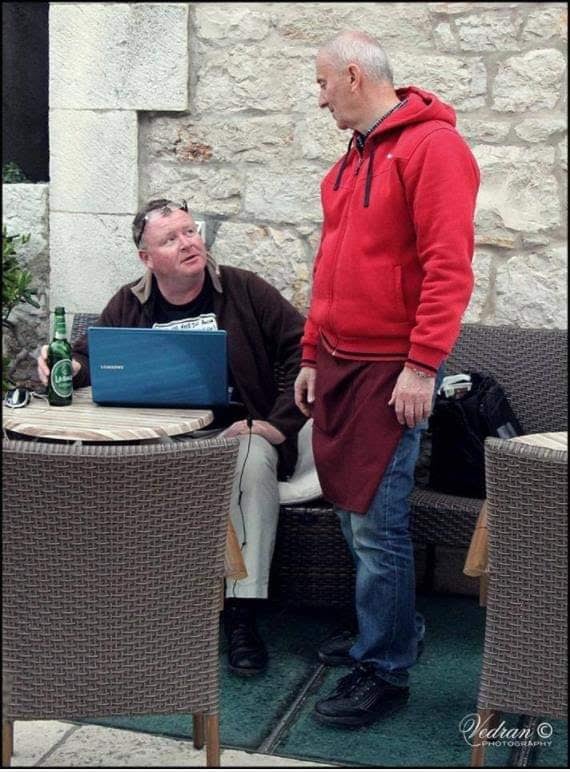
(TCN, the early years - Photo Vedran Segvic)
Within 30 minutes, the message came through. The article was not only approved but commended. More importantly, it was live on the Internet, and I was now free to publish my subsequent texts directly, without any editorial checking. My heart missed a beat when I saw the article there, live and available for all to read - and for all to comment.
The website had some excellent backend tools, including real-time reporting, so that you could see how many people were reading your stuff at any one time, and where the traffic was coming from.
It was the start of a new addiction that all bloggers suffer from to a larger or smaller degree. - statistics.
Four people were reading the article. Then 6. Now 9. All at the same time. And then my heart skipped a beat. It seemed that a Vancouver news portal was linking to my article from the data in the tracking. I went to the Vancouver portal and sure enough, there it was. In a story about a bomb in Greece, there was a box with Related News. I guess that Greek news stories are quite thin on the ground in Vancouver in October, and so my Albania driving article got my first ever online placement.
I was hooked.
I wrote a second, and then a third article, both about Hvar, and I watched them go live, get read, liked and shared. One of the articles had an incredible 11 Facebook likes within an hour of my publishing on a Dalmatian island in a cafe with a beer.
The more I researched, the more I realised that there was actually very little information about Croatia in English, apart from football, how gorgeous its beaches were, and occasionally about politics. About Hvar, there was almost nothing - crazy when you look at how many column inches it gets today. I started writing 3, 4, 5 articles a day, all about Croatia and particularly Hvar. As my Canadian site was a Google News partner, and given the lack of competing material, it didn't take long for the Croatian media to start quoting this authoritative Canadian news portal. When in fact it was a fat Brit with a cold one sitting in a cafe in Jelsa.
When Google introduced its deadly Panda algorithm update, our site lost 94% of its traffic overnight, and I went from being regularly quoted in the Croatian media to unfindable on Google. I had learned a lot, but was it enough for me to start on my own?
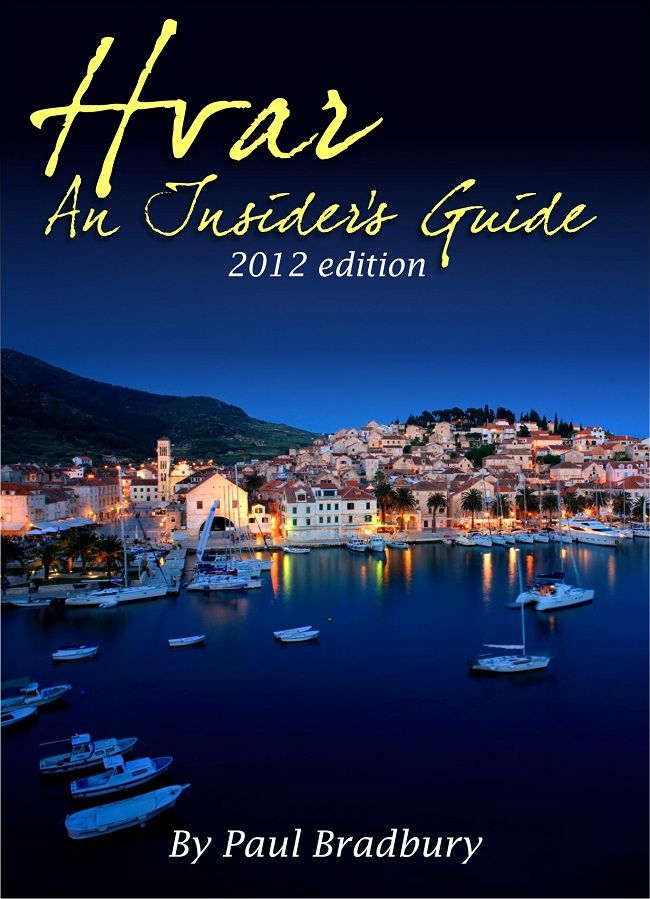
By this time, I was becoming something of a Hvar expert, having written the first modern guidebook for the island, and when my wife suggested I follow it with a website, given that the five island tourist boards did not communicate with each other or do any joint promotion, the idea of Total Hvar - the origin of TCN - was born.
Life was good.
I was living on the most beautiful island in the world, working from a cafe (I suppose I was an early digital nomad), and my job was to write happy stories of discovery about my adopted island. Locals loved me, as did the island tourist businesses, as they were getting some excellent promotion of the island, as well as many of the islanders learning things about their own island that they didn't even know.
As a bubble of life in Croatia, it was perfection. Happy stories - and fascinating, untold, happy stories - about an elite tourist destination, and endless sunshine island living, what could be more perfect?
Of course, life is not a bunch of roses, even on the most idyllic of Dalmatian islands. Complaining is an Olympic sport in Croatian cafes, and I was fascinated to see how locals would spend their whole (extended) coffee break complaining about things, then doing nothing about it. It was as though the art of complaining was part of the coffee ritual, and the ensuing discussion sorted out the problem.
One day, I decided to write about one such problem which had been dominating more cafe attention than usual. If I discussed it on my portal, that could lead to an online discussion, which might even lead to some kind of change. A healthy way to discuss problems and move them forward. And anyway, all I was doing was voicing the views of all the locals.
I was shocked by the response. No less than 7 people unfriended me on Facebook, with two looking the other way when I walked down the street (and they continue to do so 10 years later), and a torrent of abuse from people telling me to F*CK off back to England if I didn't like it here.
From the very same people who were complaining about the same thing I was writing about the day before.
It was an important lesson - a foreigner really is not allowed to have an opinion in Croatia. Even if that opinion is the same as the local one when it might be aired in English where tourists might hear something negative about Croatia.
I remember back then just how sensitive I was to online criticism. After all, I was not writing about my own country, and local knowledge would always trump mine. I remember how a negative comment on an article about the local kindergarten ruined my afternoon and had me torturing myself to be more careful with my words.
I laugh at that memory, ten years on writing about life in Croatia. For then I started a news portal, Total Croatia News.
Not only did it take me off the island, but also out of its happy tourist bubble. And into the warm embrace of the Croatian keyboard warrior.
When I started TCN just over 5 years ago, in July 2015, I really had no idea what I was doing. I had only just heard the word 'uhljeb' for the first time, and I really hadn't graduated much further than my idyllic tourism bubble. I certainly had no concept of the polarising politics of Croatia, the obsession with the past, the timewarp world of some of the diaspora, the cult of Partizani v Ustase, or the online abuse and occasional death threats (or, as one so eloquently put it - death treats) that came my way by message and phone.
It was a baptism of fire.
If I was sensitive about a negative comment about an article about a kindergarten, then clearly running a news portal about Croatia was not for me. It is certainly not for anyone who is sensitive in any shape or form. The Croatian keyboard warriors are brutal at every turn. It took me a while to get used to them, but now I look on them with a kind of perverse affection. And I know for sure that if they don't come out in force when I write an opinionated piece, then I am losing my touch.
I learned early on that there is little point in engaging in discussions online. A discussion might start out with the best of intentions but it does not take long to descend to Ustase v Partizani, and the most important question of all for all commentators - Di si bio devedeset prve? (Where were you in 1991, ie when the Homeland War started?)

It was like going for a swim in a shark tank, where there was little hope of survival, and where a throwaway comment (nobody cared about them on the Hvar tourism bubble site) could start an online war, as well as the most spectacular conspiracy theories. I forget which secret service I am currently working for - MI6, CIA, FSB, Mossad or the chaps from Greater Serbia - but when we finally moved from Hvar to Varazdin, I publicly came clean with my spying mission. Having spent a decade monitoring the olive harvests of Vrisnik and Pitve, I had been reassigned to count the number of Varazdin pumpkins.
I was genuinely bemused at how much emotion and rage one can arouse from an article on a portal like TCN, as well as the passionate opposition to things that my writing evoked. Could it be that I was touching on sensitive things that might actually benefit from being discussed out in the open?
With the negative comment on my kindergarten article a distant memory, I decided to write about the realities of Croatia, the good, the bad and the ugly. There were certain things, such as Vukovar and Oluja, that I thought best to leave alone, as they were raw and I did not know enough about them, but I made gentle inroads into a new area for TCN.
Not only did I have to be more careful with words, but now that more people were reading, the national (and then international) media started taking notice. A sign of just how the media has changed with the Internet was evident in December 2015. I was the only witness to a curious event on the main square in Jelsa - the removal of the Christmas star - but one hour later, it was the number one story in Croatia (and the subject of discussion on the island for months). One article picked up initially by Index.hr and then the rest of the national media.
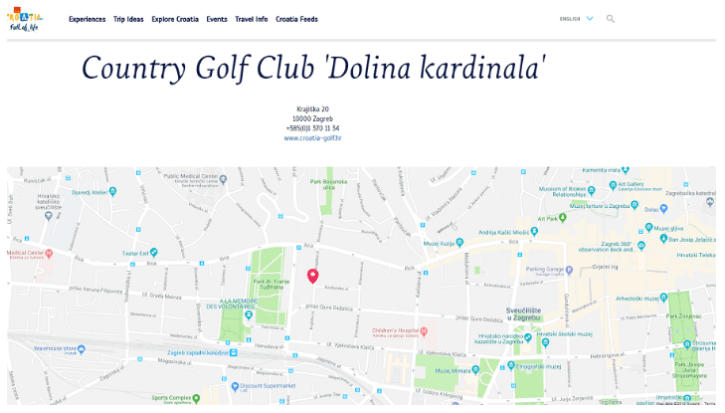
(Screenshot from Croatia.hr)
As time passed, it was interesting to note that not only was the Croatian media using TCN as a source for some stories, but some stories would bring about small elements of positive change. When I politely pointed out, for example, that I had not been able to locate the 18-hole golf course the Croatian national tourist board was promoting in central Zagreb, the golf course disappeared from the official website the same day, Over the next few days, golf courses, real and imaginary, appeared on the site, and it was hard to keep up, leading to Tourism Quiz of the Summer: How Many Golf Courses Will Croatia Have Next Week?
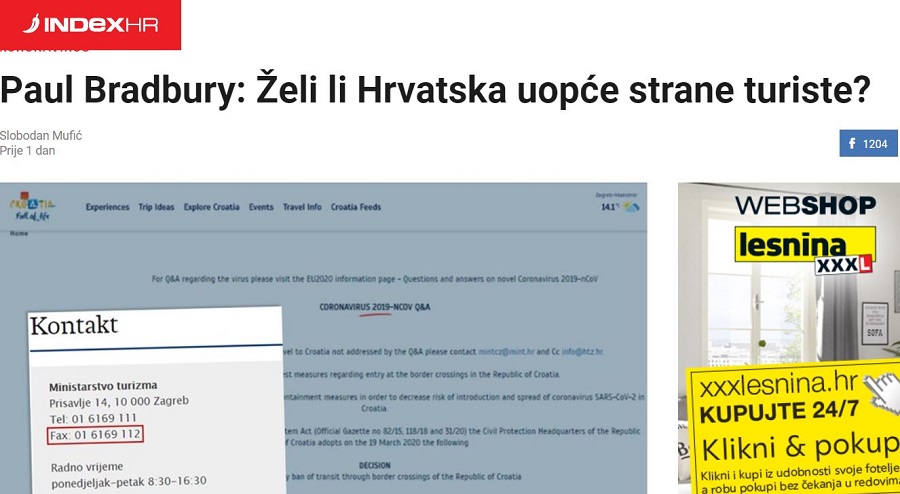
Sometimes the changes came really quickly. When I pointed out in May that it was a little odd that the only means of contacting the Ministry of Tourism on their home page was by letter, phone of fax, the fax machine was abolished from the ministry within the hour of Index publishing the story. At the same time, more than 3 months into the pandemic, with zero information on the ministry website about corona, and a rather unhelpful and non-user friendly page on the national tourist board, both sprung into life around May 11th, with shiny new pages and the first useful information (read more in this article on Index).
Obviously, when one points out some of the shortfalls of the powers that be in Croatia, the likelihood of any official recognition of one's work is fairly unlikely, but there were others who seemed to appreciate TCN and its work, as far away as Malaysia. The last thing I expected to be doing last year was to be flying with my wife to Kuala Lumpur to pick up a media award at the inaugural Medical Travel Media Awards, but there we were. An amazing trip, and a sign of TCN's growing international reach. It was a far cry from those early days with a beer and a laptop and Jelsa winters.
And there is no recognition quite like the recognition of one's writing colleagues.
The 2014 Marco Polo FIJET Grand Prix Award at the National Society of Journalists for best international promotion of Croatia was the first thing I had won since coming third in the Under 9 chess challenge in Surrey back in 1978. A huge and unexpected honour.
In addition to the expected torrent of abuse from the army of keyboard warriors and a growing number of trolls, I was surprised by an ever more frequent type of correspondent - the second and third generation diaspora, who had been raised in his/her own Croatian bubble abroad - and one which had little to do with the realities of life in Croatia today.
"Dear Mr Bradbury, I have been following TCN for some time and wanted to thank you and your colleagues for giving me a different perspective on my homeland. I am a second-generation Californian, and everything I read on TCN - written by people who actually live in Croatia - is very different from what I was taught in my diaspora community. Thank you, and I look forward to learning more about the realities of life in the modern Croatia. You have certainly changed my perception of my homeland."
This kind of email came through more and more, and I realised that there was a niche to fill, a disconnection between the younger diaspora and their home country. I started writing more about the realities of life in Croatia from my own personal experience to help people understand how things really are today. As many people who opposed this perceived negativity also appreciated it. As with everything else in Croatian society, opinion is split down the middle.
Croatia has a default negative mindset, I concluded, and the saying that a Croatian can forgive you anything but success is certainly true. These were two themes that I touched on in my interview with Croatian interviewing legend Romano Bolkovic in the interview above.
But what happens if you swap the negativity for positivity?
One thing I have noticed about writing in Croatia is that if you start with a positive theme, you are quickly worn down with skepticism and negativity. It seems almost at times that people here don't want to hear about success and look forward to happier times, as they are entrenched in a groundhog day of disappointment and broken promises. But I also learned that there are enough bubbles of positivity all over the country that are moving things forward. Surround yourself with the positive people, immerse yourself in the fabulous lifestyle, and Croatia really is the best place on the planet.
****
"Don't forget you have a wife and children," was the chilling message on my cellphone before the line went dead. Yes, we are a democracy, but you write about certain things at your peril. It is a fine line that is hard for a foreigner to know when he is transgressing. At least in Croatia one receives a polite warning, unlike other places in the Balkans.
For those of you who sometimes ask why we don't write about certain topics in Croatia, there is your answer.
****
After almost a decade of writing about Croatia, I felt more confident approaching the foreign taboo topics, such as Vukovar and Oluja. The longer I was here, the more I realised that actually nobody was writing about them in English, and so I decided to visit them both. And both were very different to my preconceptions - and therefore, possibly, to other people too.
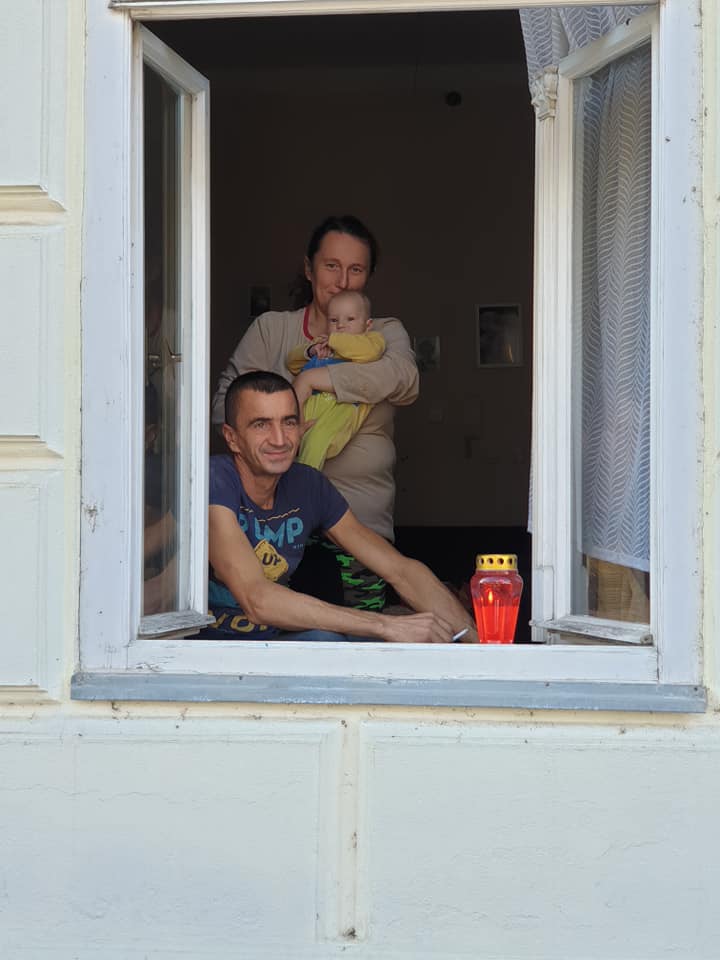
Vukovar Remembrance Day Through the Eyes of a Foreign Resident
Operation Storm: Foreign Reflections on a Visit to Oluja 2020 in Knin
The good, the bad and the ugly. Croatia is an incredible country, with SO much to write about, that I feel it is an absolute privilege to be here and to be able to communicate its magic to a growing number of interested readers. Some 17 years after arriving, for example, here are 30 incredible new experiences I got to write about in 2019 alone.
Ten years on, I no longer worry about a critical comment on an article about a kindergarten. Indeed, I rarely read comments at all (sorry, trolls). But I do enjoy exploring and discovering this unique paradise, celebrating the excellence, constructively criticising the shortfalls, and trying to highlight its magic to forward-thinking people with an interest to help ensure a brighter future for Croatia.
To all those who have followed my writing over the last ten years (especially those who are still reading), a heartfelt thank you. May the next ten years be equally exciting - I have a feeling they will be.
Cheers!
As TCN Celebrates 5 Years, Reflections on Running an English News Portal in Croatia
July 7, 2020 - Total Croatia News is 5 years old today. It has been quite a journey - some reflections on how TCN started and where it is going.
Looking back, I can't believe how naive I was.
To think that I could run a national news portal in English, covering the whole of Croatia, when my knowledge of Croatia barely extended to more than every inch of the island of Hvar, Diocletian's Palace and Zagreb train station.
I am exaggerating a little, but not so much.
I don't think I have ever written the story of how TCN got started. Back in 2015, I was writing for an international Google News website, and I was reasonably well read, sometimes making the top 10 writers of the week. Many of my articles got 1-2k Facebook likes, which came with a bonus, so life was good.
And then one day, I got fired suddenly, told that my articles were not that interesting or relevant (despite those bonuses for lots of clicks). The fact that an article on Adriatic oil drilling from the perspective of environmental protestors I had written was unpublished minutes before my termination email made me speculate as to the reason. Whatever the reason, I was no longer a writer for the site.
"Why don't you start your own news website?" asked a friend and long-time supporter. "There are some English sites about Croatia, but none focused on daily news."
Why not indeed? And so in I waded, having no real clue about Croatian realities or politics, beyond my Hvar tourism bubble.
I wanted to make a splash on the first day and target the diaspora, a natural readership market for those with love for Croatia not matched by their linguistic abilities. How better to impress than an interview with the Croatian Minister of Foreign Affairs, I mused - that would show how serious I was.
And if the said foreign minister had been more to the right than Vesna Pusic, I might have felt a warmer embrace from the likes of Sydney and Melbourne.
It was an inauspicious start, and one about to get worse. One of my main writers got quite seriously ill soon after we launched (thankfully more than fine now) and it wasn't long before the other hopped on a plane to Athens and was never heard of again. Add to that the unforgiving Croatian army of keyboard warriors, and it was clear that I had taken on more than I could handle.
But then, slowly, things began to change. A core team began to develop - Lauren, Dani and Iva - who have now been at TCN for four years, as well as the rock that is Vedran, provided not only stability but much more knowledge about Croatia, how it worked and the pitfalls to avoid. With their help and guidance, TCN took shape. Report the politics, but keep out of the politics, give people what they want in terms of information, and celebrate the little guy.
Only 6 weeks before the launch of TCN, and some 12 years after I moved to Croatia permanently did I hear the word 'uhljeb' for the first time - in an Index news title with my name in it.
And so my view of Croatia changed now that I had crossed the Rubicon. For my new Croatian reality could not return to the old - A Tale of Two Croatias: Before and After the Uhljeb Discovery
My personal journey of discovery continued and I finally made my peace with Croatia, once I had got to Stage 3 - The 3 Stages of Learning for Foreigners in Croatia: Love, Hate & Nirvana.
Once I understood that the best way to approach Uhljebistan is to treat it as an Uhljleb tax necessary in the most beautiful country with the best lifestyle in Europe, in the same way an alcoholic in Norway absorbs the high alcohol tax when he could drink cheaper elsewhere, I was free. Pay the tax, surround yourself with positive people. And accept the things you cannot change, have the courage to change the things you can, and have the wisdom to know the difference.
And with that mindset, Croatia really is the most incredible place on the planet.
Here are some random thoughts and things I have learned so far on this five-year journey.
1. If you want to be liked by everyone, don't start a news portal in English in Croatia.
2. If you can't handle constant abuse, don't start a news portal in English in Croatia.
3. Croatians, especially the diaspora, are a very tough audience. They can love you for a while, but one wrong word and that all changes.
4. The Croatian diaspora is VERY diverse. There are those who rarely visit since their grandparents emigrated from 1945 on who are the most patriotic (although many don't speak the language) who have the biggest opinions about Croatia today, as well as a growing number of 2nd and 3rd generation diaspora who are realising perhaps the daily experiences of a foreigner living the Croatian reality day to day is a better indicator of the realities in Croatia today.
5. You will never please everyone, and everything will descend to Ustase v Partizani once enough comments get going.
6. Running a foreign portal in Croatia is fertile ground for the conspiracy theories. I have forgotten who I am currently spying for, as there have been so many agencies I am allegedly working with. Ditto, the dark forces funding TCN (I wish!).
7. Croatia has SO many incredible people doing incredible things. SO many. They mostly exist in their own bubbles once they pay their Uhljeb tax. But those bubbles are starting to connect, and that is why I am very hopeful for Croatia. Initiatives such as Glas Poduzetnika are just the start of the road to Croatia 2.0.
8. There are only really two problems in Croatia today - the system and the mindset. If we can go around the system to inject the mindset with positivity, one story at a time, then the system may change. This is one of the things we will be addressing in our new CROMADS project, which will go live in a month.
9. There is also a third problem, which I call the Death of Hope. There must be a million people in Croatia who desperately want change, but no longer believe it is possible. There are probably another half a million Croatians who feel the same way, and have voiced their protest - the protest of emigration on the streets of Dublin, Frankfurt and Stockholm. If we can get that million to believe that change is coming, it will.
10. The two viruses of transparency and technology are getting stronger, two of the best weapons that Croatia 2.0 has. Corona has done a lot of damage, but it has also given Croatia a real opportunity for change.
11. Croatia IS changing, and Croatia 2.0 IS around the corner. It is not a matter of if, but when.
The last five years have taken me to every corner of this incredible country, and it has given me authentic experiences a Manchester city boy could only dream of, introduced me to characters who are books on their own.
The future of Croatia is incredibly bright, I believe that more strongly than ever, and change is coming.
My heartfelt thanks to the 158 contributors for TCN over the last five years, as well as the huge support from our loyal readers from all over the world. I had no idea what I was doing five years ago when I started Total Croatia News, and I am not sure I am any the wiser today, but somehow it feels that we are going in the right direction.
Thanks for your company in the last five years, and I hope you will join the TCN team for the next five years and beyond.
.
Croatia, a Land of Little Promotion Where the Police Answer Tourist Emails
June 15, 2020 - Although tourism accounts for 20% of Croatia's GDP, it is a land of little promotion where the police answer tourist emails. It is time to abolish the Croatian National Tourist Board and start again.
I have been very critical of Croatia's tourism chiefs in recent times, and I make no apology for that. With so many people depending on tourism for their daily survival, Croatian tourism bodies need to deliver more than ever before, or more people will lose jobs, businesses will close, and more rental properties will be at the mercy of bank repossessions.
So how is the Croatian National Tourist Board doing. And WHAT exactly are they doing? As I will demonstrate below, and despite having a staff of over 70 people, the answer appears to be not very much.
I want to explore a few topics to demonstrate the lack of the need for the national tourist board, at least in its current format. I will look at four things - its promotional activities, response to tourist enquiries on COVID-19, efforts to see facts about Croatia represented accurately in the global media, and how they respond to a private tourism promotion initiative they claim to like.
Greece recently came out with a very clear statement that is was open for tourism on June 15. There was a timeline infographic, as well as a media blitz which saw Greek tourism on the front page of the BBC, featured in The Guardian, and all over the international travel media. About Croatia, there was only confusion, all the more so when Croatia opened its borders to 10 EU countries but not the others.
I was curious about how much promotion Croatia was doing internationally, so I posted some questions on my Facebook page, asking people in other countries to let me know what they were seeing, and which countries were doing the most.
There was almost no promotion whatsoever.
Curious, I sent the following media request to the national tourism board - here it is, complete with the answer:
Which are the main target markets for this season - am sure you have been forced to readjust? How many campaigns have you conducted so far, and where? What were they called?
The markets on which we are currently focused, primarily due to the epidemiological situation and their proximity, are Slovenia, Austria, Germany, Hungary, Czechia, Slovakia and Poland. Since the start of the pandemic, the CNTB has launched and promoted 3 campaigns. In April the new communication platform #CroatiaLongDistanceLove was created with the key message „Welcome Croatia to your home”, developed for the millions of followers on the social media platforms Facebook, Instagram, and Twitter. Subsequently we launched the campaign The Vacation You Deserve Is Closer Than You Think on neighbouring markets within a relatively short driving distance, which as mentioned include Slovenia, Austria, Germany, Hungary, Czechia, Slovakia and Poland. Whereas, once the necessary prerequisites are met, this campaign is also planned for the markets of Italy, France and the Netherlands. In addition, a new communication EnjoyTheViewFromCroatia was recently launched. This is an online platform, focused on user-generated content supplied by the tourism sector in Croatia, as well as individuals, namely for all those wanting to supply content and promote their destination within Croatia. This campaign primarily targets key markets, that are not likely to be traveling to Croatia in the short-term, such as the long-haul markets like the USA, China and South Korea.
For additional information you please see the accompanying press releases on http://www.htz.hr/en-GB/press/press-releases
Seven countries.
20% of our GDP dependent on those 7 countries.
I can of course understand that there is little point advertising in the USA, China or South Korea at the moment, but Switzerland, Serbia, BiH and - maybe even within Croatia itself?
Switzerland is a great market (actually the fourth biggest - yes, small numbers - on Hvar at the moment) with high-spending tourists, and yet totally ignored.
One of the people who answered my Facebook call was a Croatian living in Switzerland, who said Italy, Spain and Greece were catching the eye in terms of advertising:
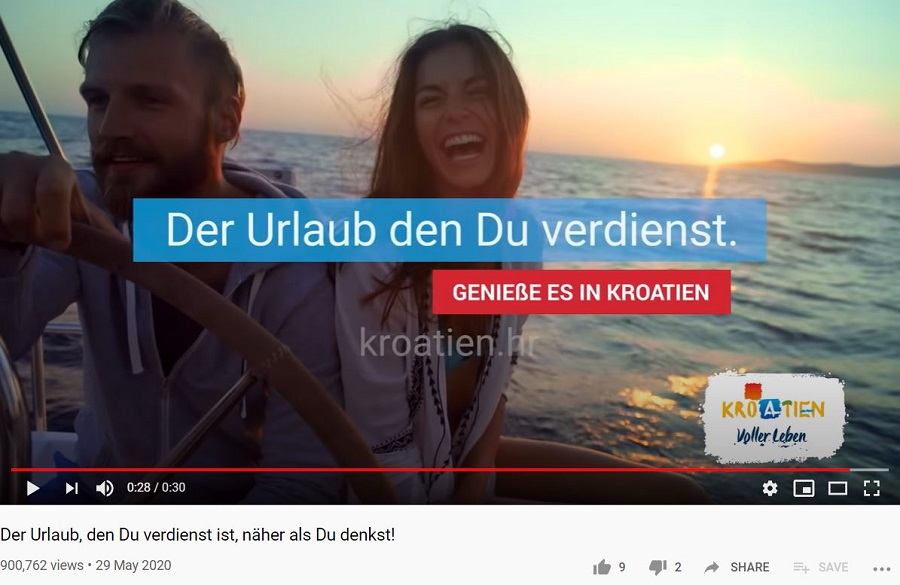
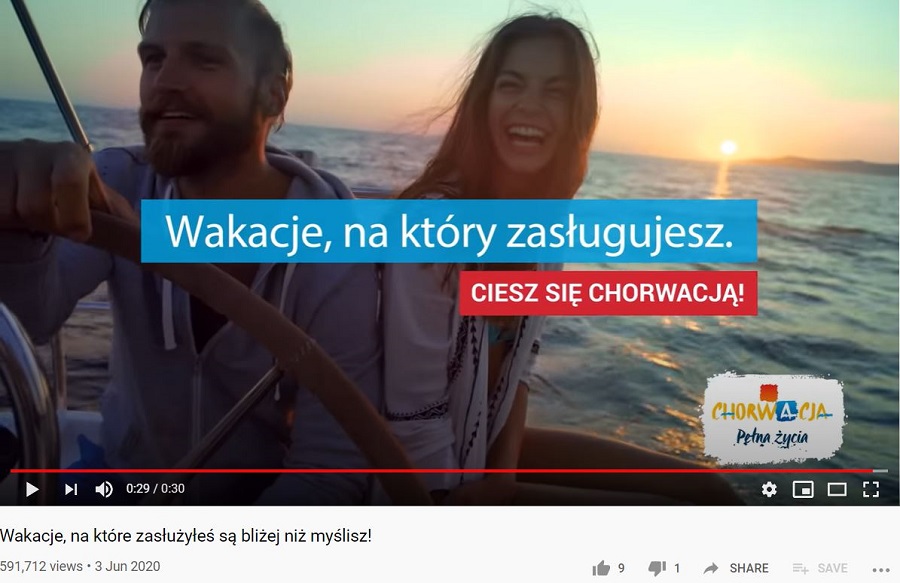
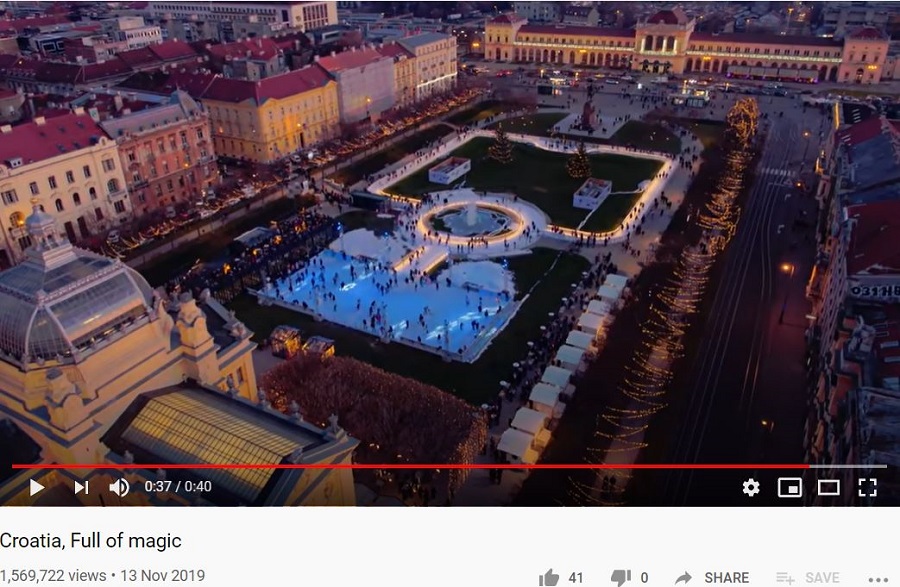
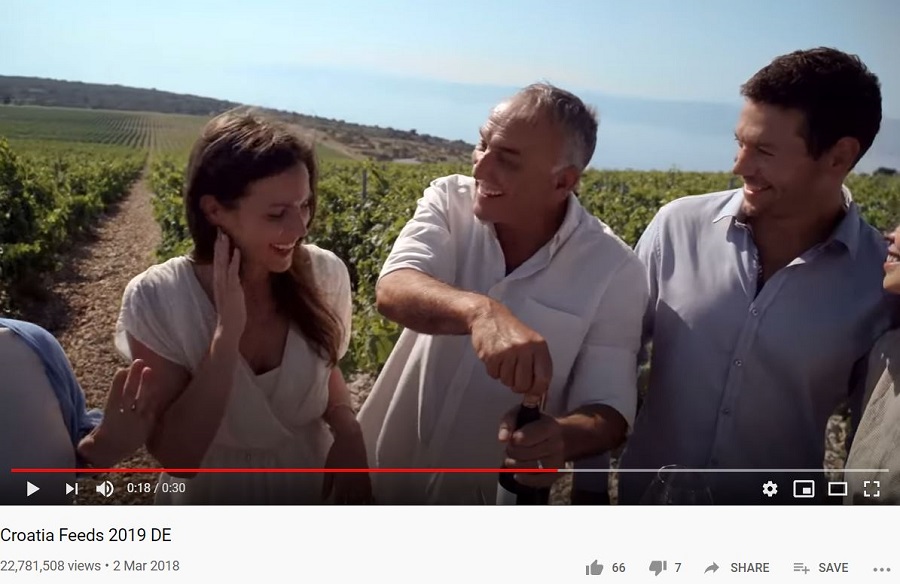
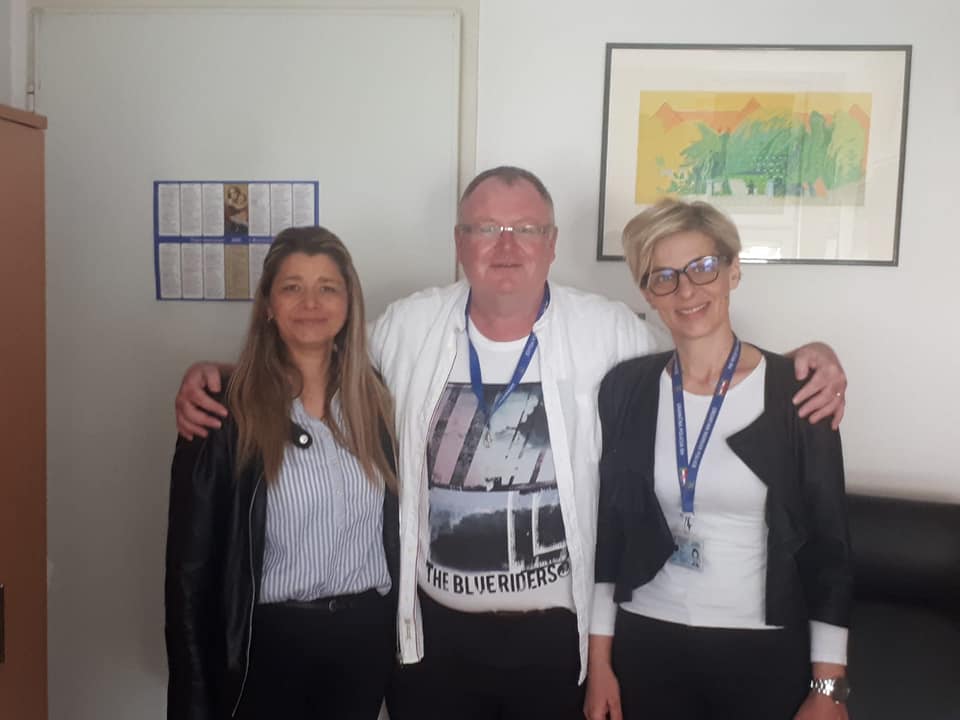
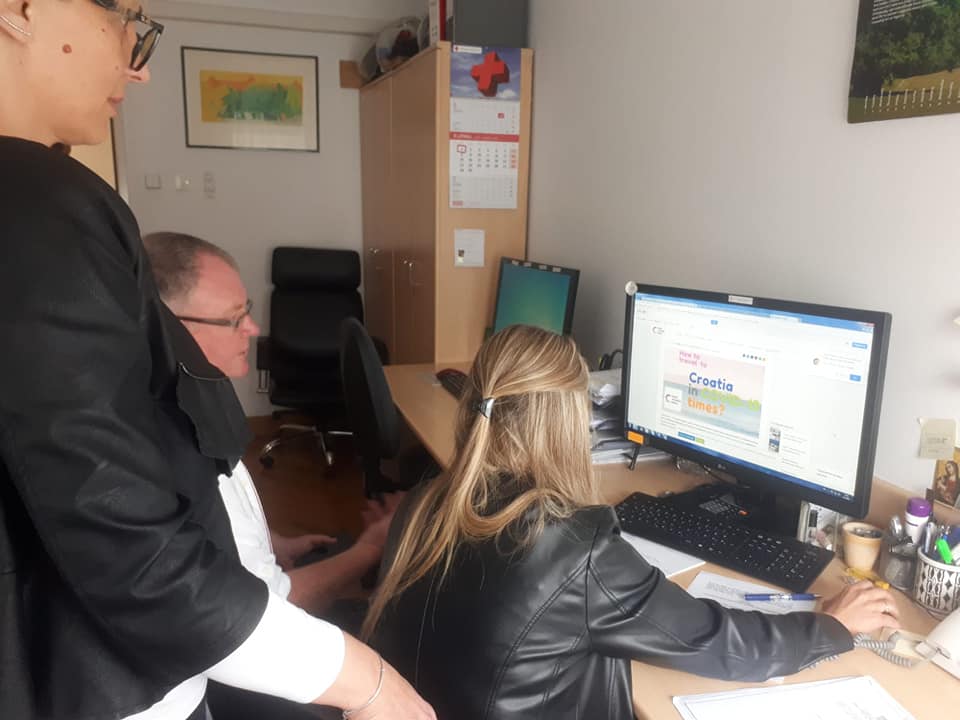
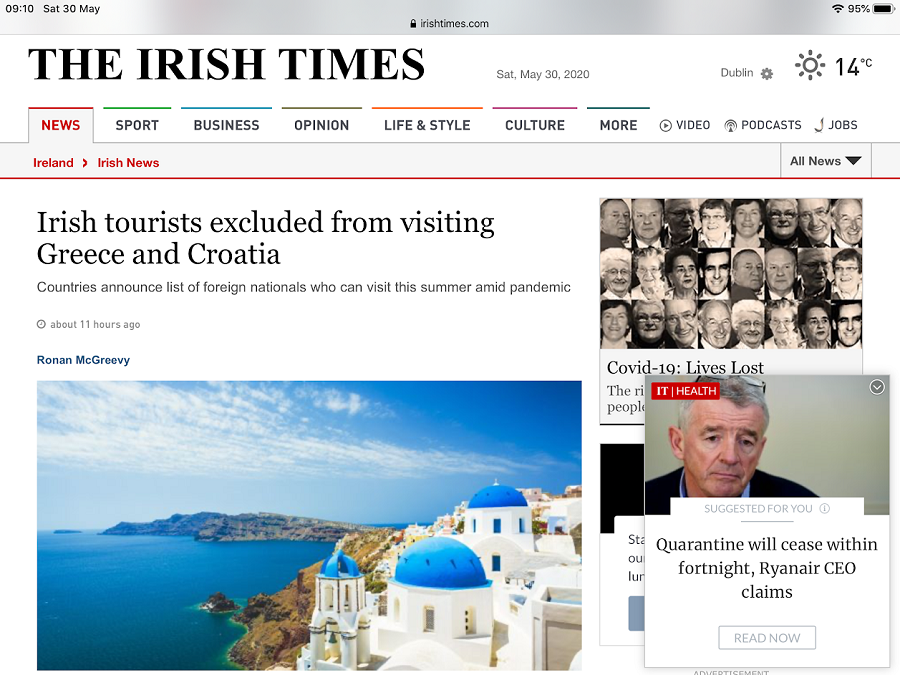
Hi Paddy,
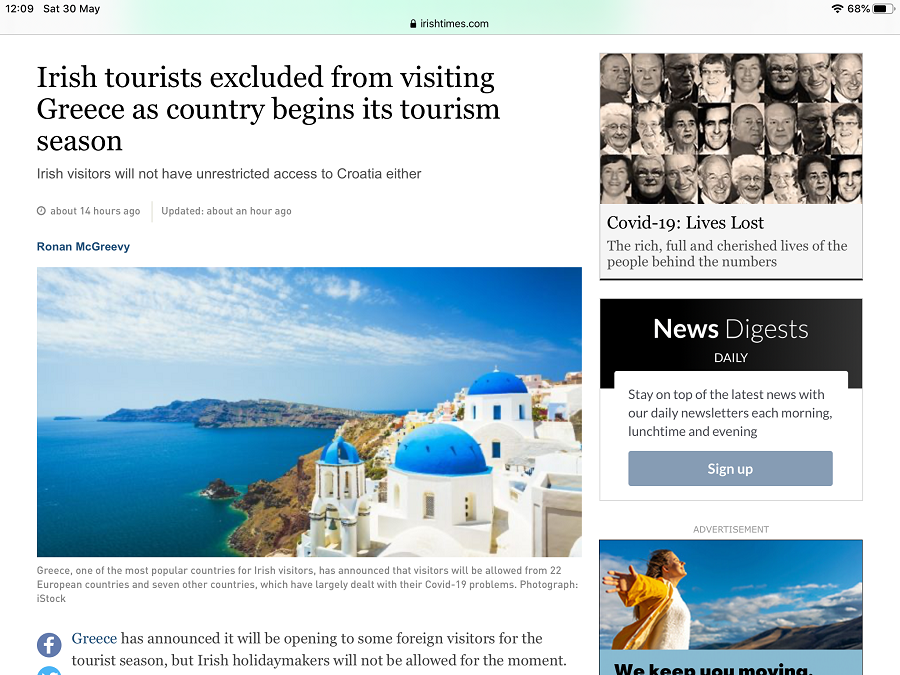
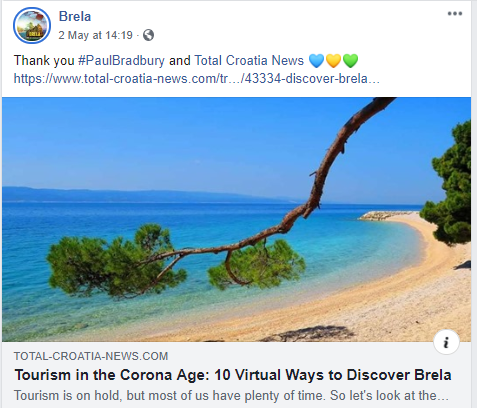
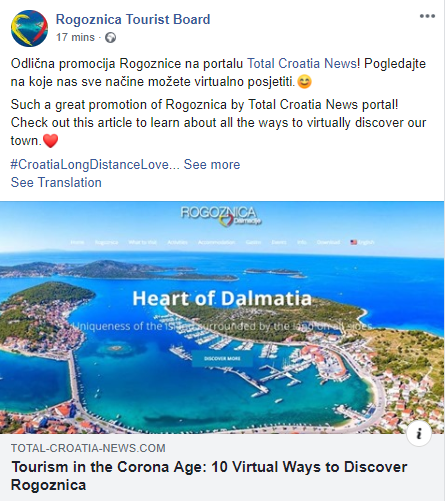
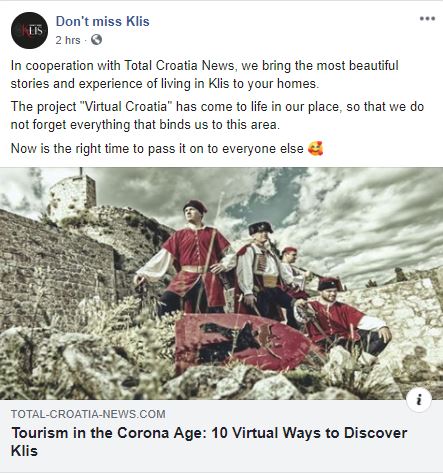
Total Croatia News Now Available in Any Language with New Google Translate Feature
May 25, 2020 - A cool new feature from Google Translate means TCN is now available in any language in the world. Here are links to Croatia's key tourism markets.
A lot of people have a love/hate relationship, a bit like flying with Ryanair. There are things that they don't like about it, but they realise it is a very useful tool when trying to understand a foreign language or get to a destination cheaply.
Google Translate has been a huge help to me (and I am sure many others) during the corona crisis. Most especially for me when I was doing my shift of the daily corona live update (and apologies for the less than perfect end product during those crazy weeks).
The tool has definitely improved over the last year, although it is of course far from perfect. I got to know some of its quirks and actually published one of them before realising.
"There are no new newborns in Virovitica" was how Google Translate sometimes reported that there were no new cases of corona.
And then I discovered something super cool the other day, thanks to Kreso Macan, that you can now have Google Translate built into your website, so that readers can see the article and all the images, links and videos in their own language and on the TCN site.
Super cool. The quality of the translation comes with the Google Translate disclaimer, and we will continue to translate certain important articles into Croatia, but I am super curious to see how popular this feature might be.
In order to encourage you to try, here are links to our main travel info page, which is updated daily, in the languages of Croatia's main tourist markets. Once you click, you can browse TCN as you would normally, just in your native language (with the Google Translate quality), or simple select another language.
Um diesen Text auf Deutsch zu lesen, klicken Sie auf (article in German via Google Translate)
Če želite prebrati to besedilo v slovenščini, kliknite na (article in Slovenian via Google Translate)
Aby przeczytać ten tekst po polsku, kliknij (article in Polish via Google Translate)
Chcete-li číst tento text v češtině, klikněte na (article in Czech via Google Translate)
Ak si chcete prečítať tento text v slovenčine, kliknite na (article in Slovak via Google Translate)
A szöveg magyar nyelvű elolvasásához kattintson a gombra (article in Hungarian via Google Translate)
Да бисте прочитали овај текст на српском, кликните на (article in Serbian via Google Translate)
Per leggere l'ultimo aggiornamento di viaggio in italiano (article in Italian via Google Translate)
Pour lire ce texte en français, cliquez sur (article in French via Google Translate)
Para leer este texto en español, haga clic en (article in Spanish via Google Translate)
Para ler este texto em português, clique em (article in Portuguese via Google Translate)
Om deze tekst in het Nederlands te lezen, klik op (article in Dutch via Google Translate)
For at læse denne tekst på dansk, skal du klikke på (article in Danish via Google Translate)
For å lese denne teksten på norsk, klikk på (article in Norwegian via Google Translate)
För att läsa denna text på svenska, klicka på (article in Swedish via Google Translate)
Voit lukea tämän tekstin suomeksi napsauttamalla tätä (article in Finnish via Google Translate)
Чтобы прочитать этот текст на русском языке, нажмите на (article in Russian via Google Translate)
Щоб прочитати цю статтю українською мовою, натисніть тут (article in Ukrainian via Google Translate)
Pentru a citi acest text în limba română, faceți clic pe (article in Romanian via Google Translate)
За да прочетете този текст на български език, щракнете тук (article in Bulgarian via Google Translate)
Për të lexuar këtë tekst në shqip, klikoni këtu (article in Albanian via Google Translate)
이 텍스트를 한국어로 읽으려면 (article in Korean via Google Translate)
要阅读中文文本,请单击 (article in Chinese via Google Translate)
Da biste pročitali ovaj članak na hrvatskom, kliknite ovdje (article in Croatian via Google Translate)
For the latest travel info, bookmark our main travel info article, which is updated daily.
Read the Croatian Travel Update in your language - now available in 24 languages
Realities of Running an English News Portal in Croatia in the Corona Era
March 24, 2020 - Running an English-language news portal in Croatia is a challenge at the best of times, but these are far from the best of times. A look behind the scenes at TCN in the corona era.
These are extraordinary times in Croatia, and today's snow over much of the country after a winter with almost no snow was the latest confirmation - to me at least - that Croatia really was the global leader in unpredictability.
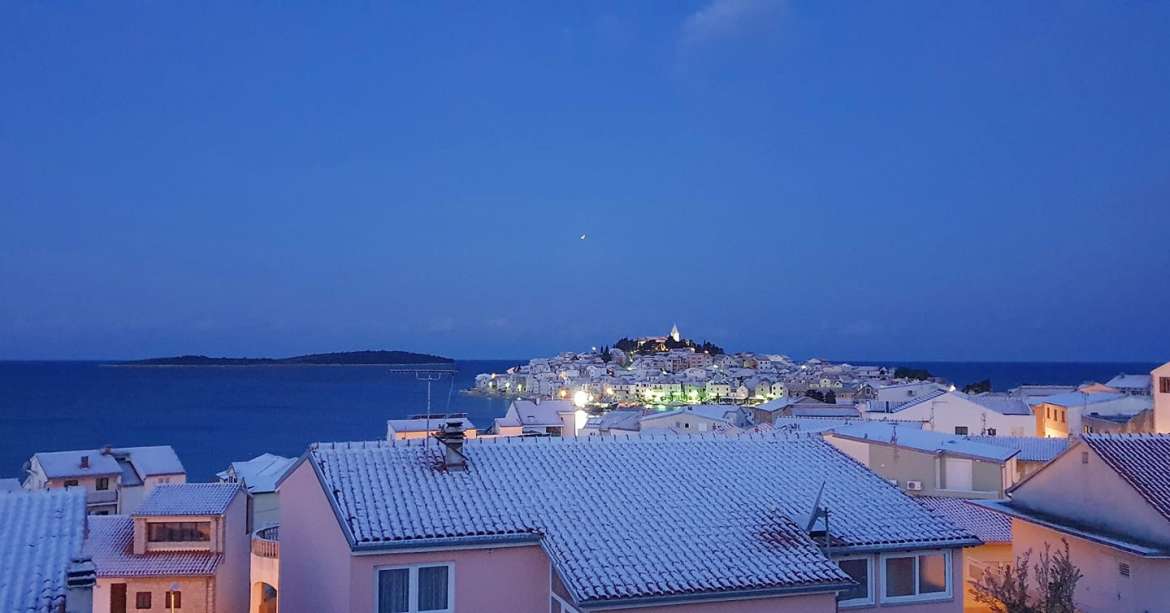
(Spring in Primosten - Photo by Sime Saric)
And nothing was more surreal than on Sunday, when my phone starting ringing at 06:25, my WhatsApp and Messenger ablaze with the very same message so early in the day:
Earthquake.
The shocking news was yet to sink in of the quakes that shook the Croatian capital, but now it was time to work. Our first report of the Zagreb earthquake was published at 06:39, just 15 minutes after the first earthquake struck. It was the first to hit the Internet in English and be indexed by Google News.
It was obviously not quite the start to the day I had planned. The early morning calls did not wake me, for I was already at my laptop working on the first article on the topic that would surely dominate the Croatian news that day - coronavirus.
I was wrong.
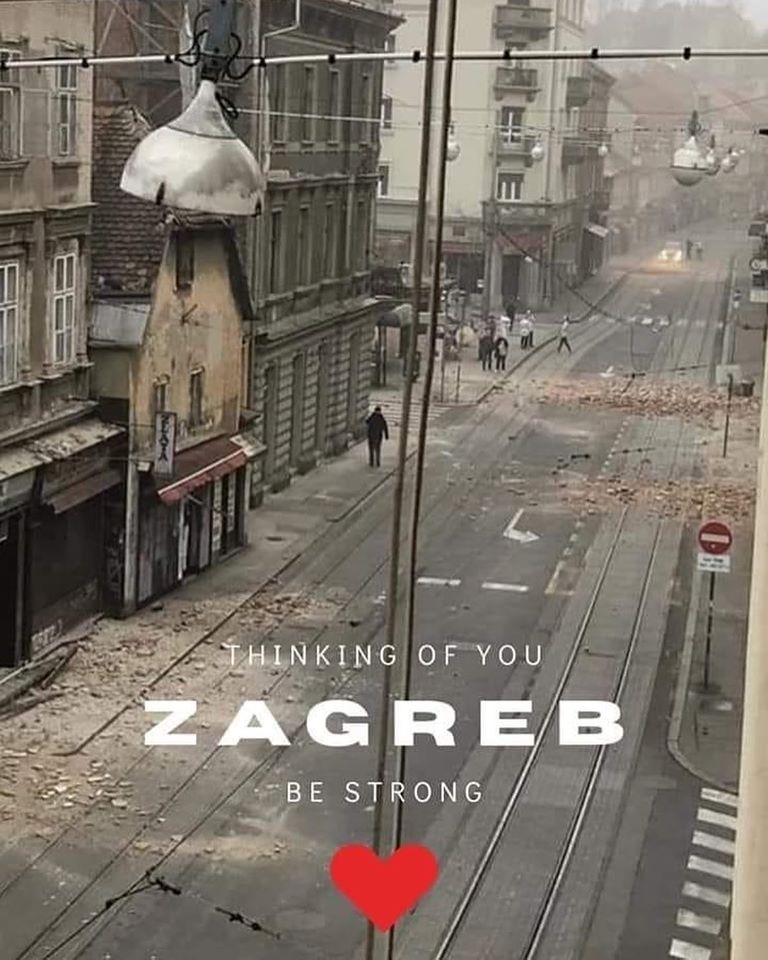
I was chained to the laptop all day, trying to cover as much as I could myself while marshalling the rest of the TCN team. A team that was a little slimmer than last week, as the reality of the corona effect on all of our lives economically reared its ugly head in the form of client cancellations, which sadly has resulted in staff cutbacks at TCN. A temporary measure, we hope. But in this crazy uncertainty, hope is all we have.
The earthquake was not kind to our Zagreb team.
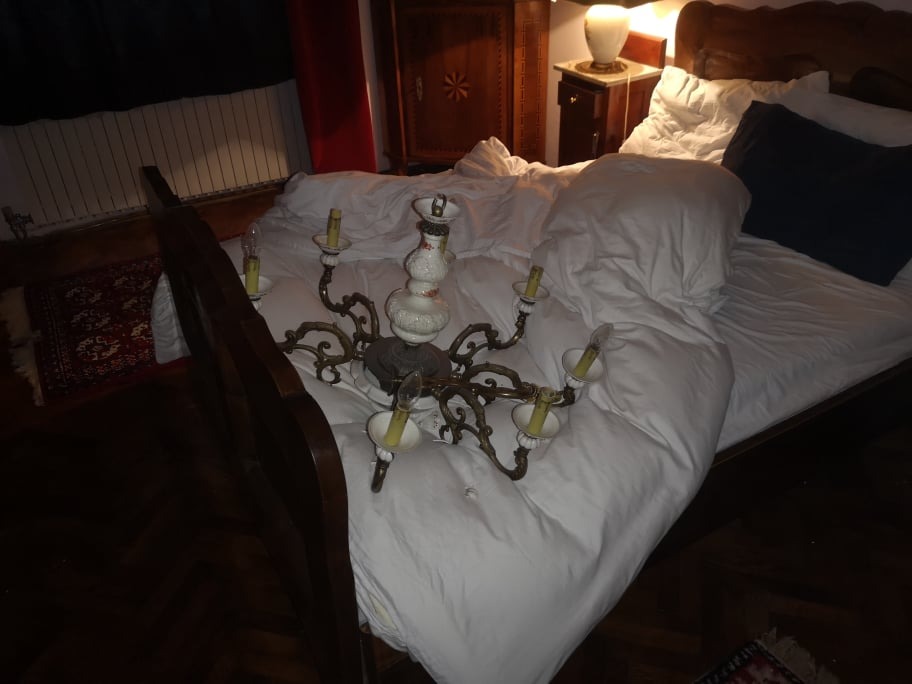
(Photo credit Forrest Stilin)
TCN's Forrest Stilin had arguably one of the most harrowing starts to the day of people in Zagreb - the double whammy of a 06:24 earthquake with a magnitude of 5.5 combined with the bedroom chandelier landing on his bed. Fortunately, Forrest has trained himself for such eventualities over the years and always sleeps in the middle of the bed. A fortunate escape. Drzi se, Forrest! We hope you are doing ok.
Forrest remains without Internet or gas some three days later, as well as a rather claustrophobic feeling of confinement with the new reality. Without Internet, he is unable to wrote for TCN, of course, but that is the least of our worries. We look forward to having him back online after recovering from the stress of this ordeal.
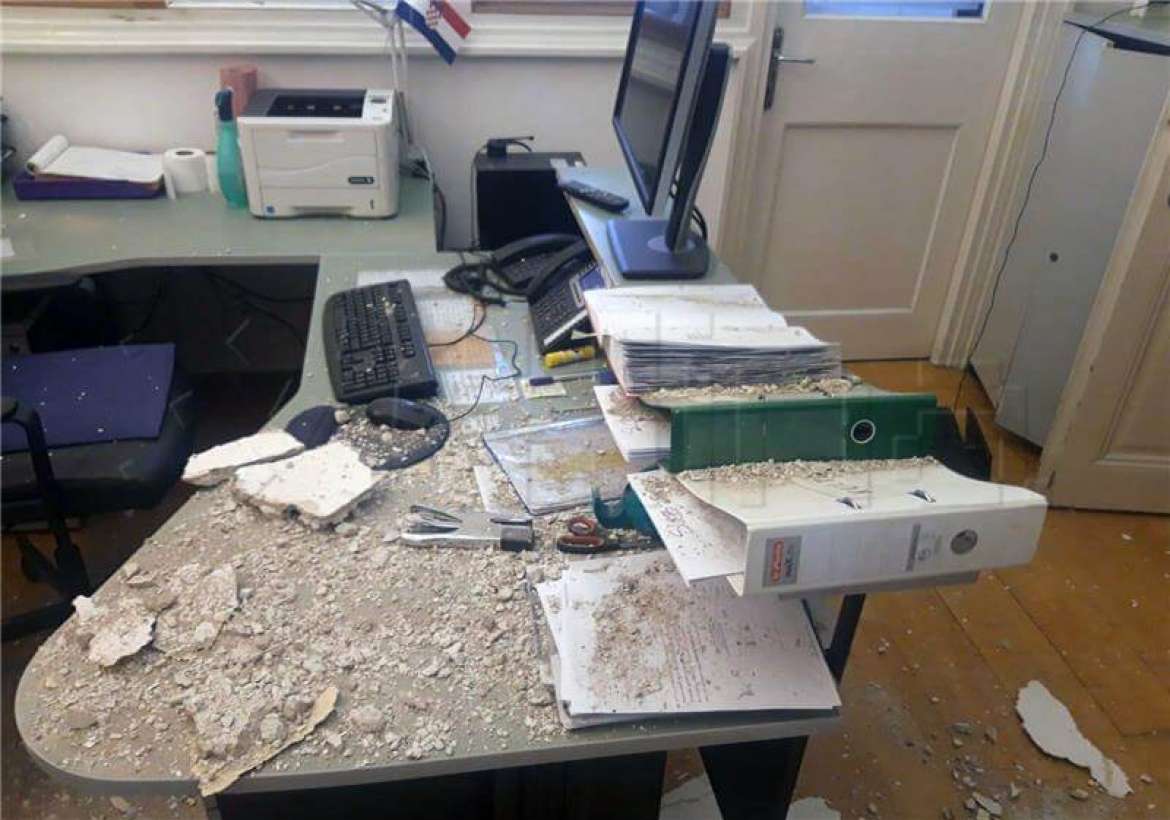
Forrest was not the only TCN victim of the earthquake. The State media service, HINA, with whom TCN has been cooperating for a couple of years, had its building severely damaged (the photo above is from the HINA Twitter feed) - you can read more about it here. But despite the considerable inconvenience, HINA soldiered on at a time when its readers and subscribers needed it most. Bravo!
TCN's beloved editor, Lauren Simmonds, was also caught up in the earthquake, although she suffered more damage the following day with the 3.7 magnitude earthquake which came 11:12 on Monday. It felt strong, said Lauren, and we were live with the story three minutes later. I asked Lauren to send me something that reflected her reality for this story.
The once busy view from her apartment - a lone fire engine cleaning up after the earthquake.
Sunday was easily the most intense day in TCN history (as well as the second busiest, with more than twice as much traffic as the World Cup Final on July 15, 2018). There were huge coronavirus stories and new travel restrictions to report on as well, and just when I was about to call it a night...
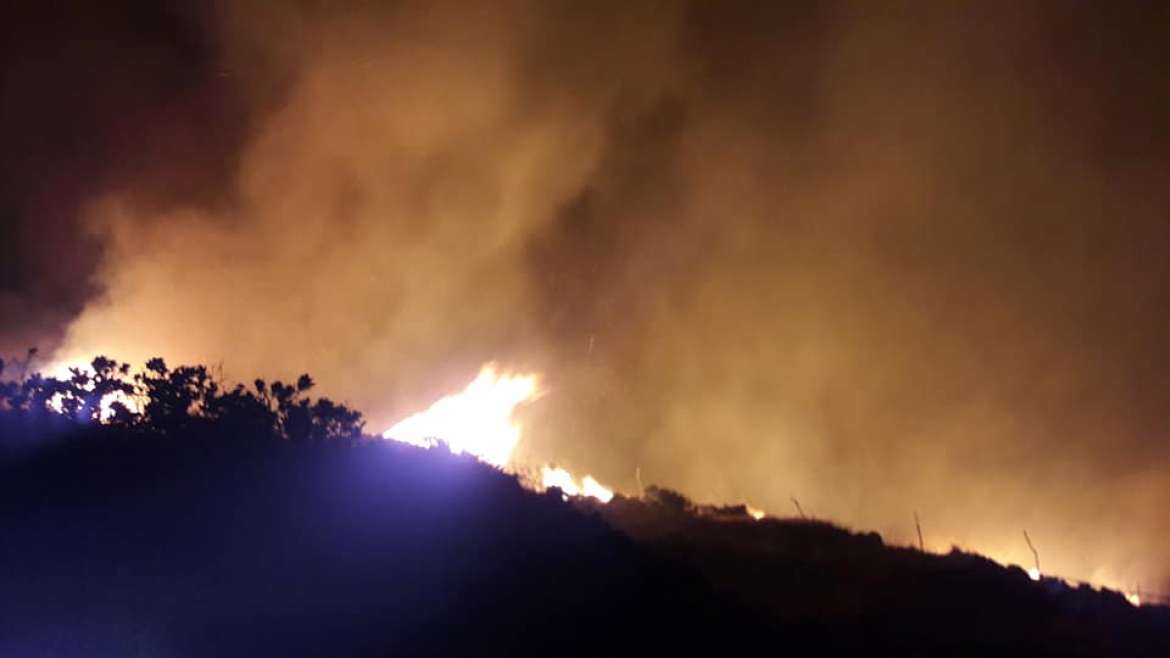
This.
A large fire had broken out on the south side of the island of Hvar, between Zavala and Ivan Dolac, with some 40 firefighters and 12 fire engines battling the blaze. We were live minutes later, with a morning update that the fire had been brought under control around 01:00.
And where was I, reporting on all this madness around me?
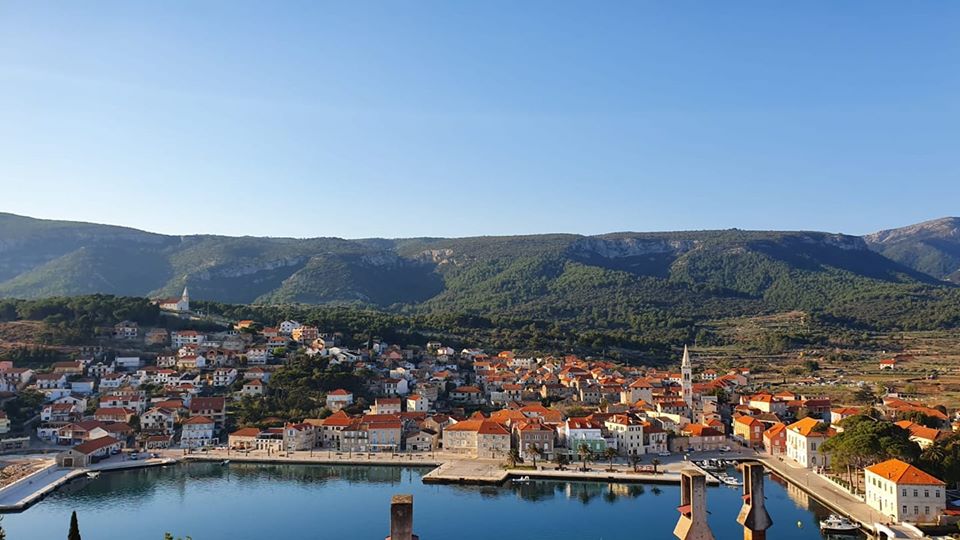
For the most part, lying in bed, self-isolating in our home in Jelsa, with sunshine beaming through the windows, a tranquil scene below. The first corona case had been reported a few kilometres away just days before, but this was a haven compared to the madness around, and it felt all the more surreal while reporting on all the chaos around.
There are pros and cons of self-isolating on an island rather than the mainland, as I explored in The Realties of Self-Isolating on Hvar, Croatia's Premier Island.
But that view, and the feeling of relative safety, nature, and plenty of space with a very supportive family, are some very big positives.
Things are tough all round at the moment, and everyone is dealing with their own corona hardships.
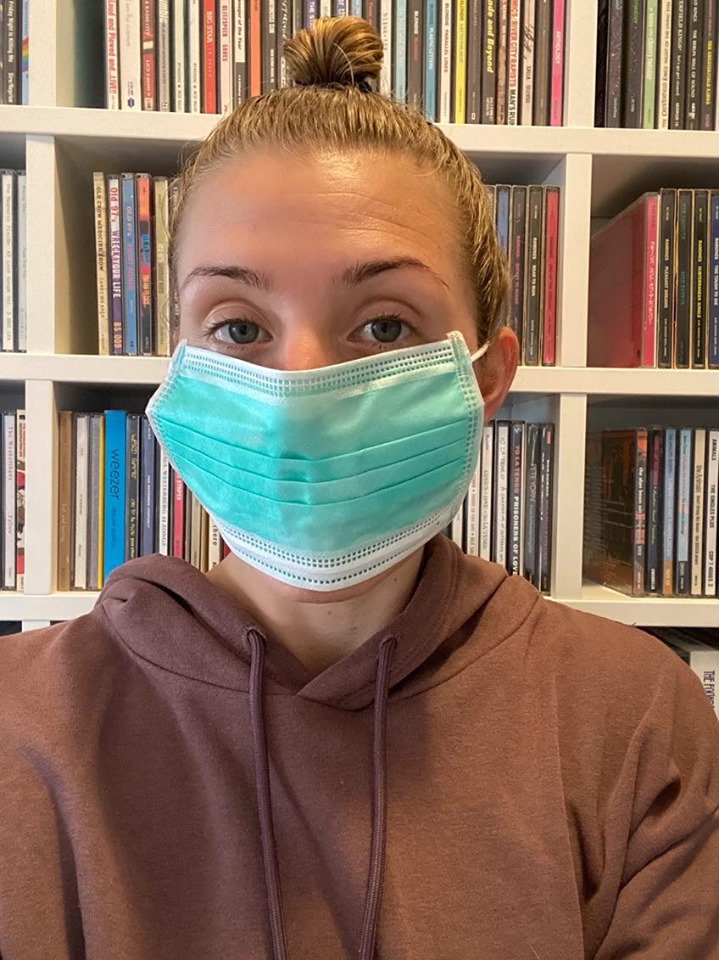
Dani has been with TCN for almost four years now, and she has done a magnificent job for us, covering so many topics for us that we have both lost count. And she has risen to the challenge once again, putting her personal difficulties to one side to perform above and beyond the call of duty.
The funny thing is that although Lauren, Dani and I have been the core of TCN for almost four years, we have only physically been together all three of us at the annual TCN Xmas party and one other occasion. And yet despite that, I have probably the best working relationship and team spirit of my life with these two magnificent ladies, who are both superb in times of crisis. Only my time working with outstanding colleagues in the wake of the Rwanda genocide in 1994 comes close.
Thank you ladies, you are both beyond fabulous, and thank you for all you do (and I know I speak for many others when I say that). Someone from New York messaged me recently to thank us for our work and was surprised at how few people worked on TCN and our Slovenian and Montenegrin portals.
"I thought you had about 50 people," the New Yorker said. With colleagues such as Dani and Lauren, it can seem that way I guess. The last three days has made our bond all the stronger.
Here is Dani, mask on in Split, and currently living with parents and grandmother. As the only under-65 in the household, her responsibilities go beyond just writing for TCN.
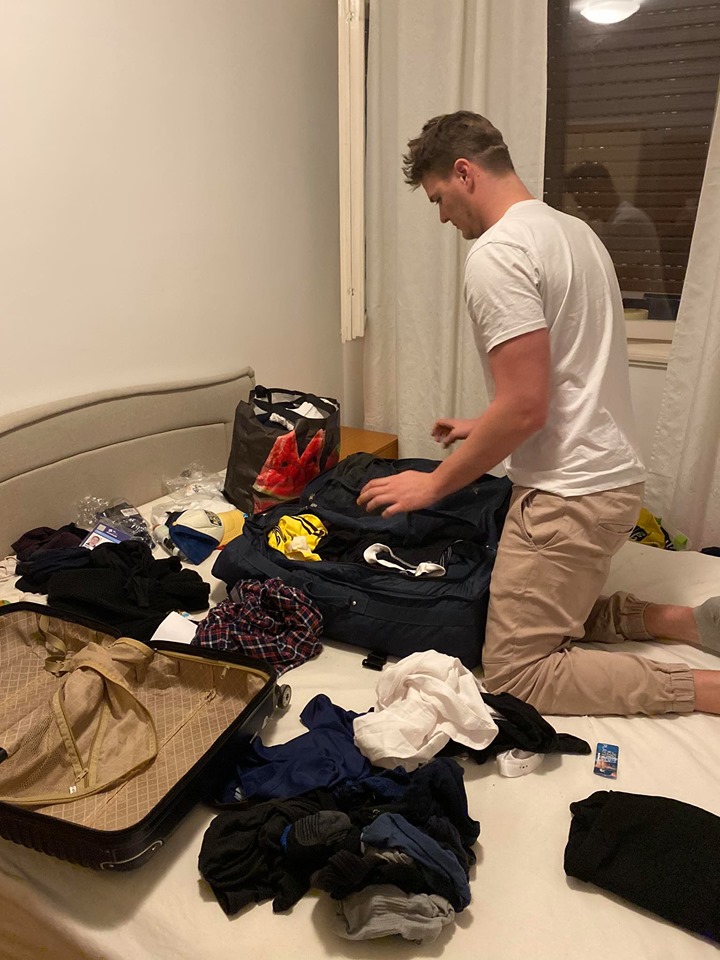
She too, is facing other new realities, as boyfriend Nathan, part of the Australian waterpolo team, was then told to return to Australia by his coach for Olympics training before Europe locked down. After much stress and packing up his apartment until 04:30, he took the first Splt flight to Zagreb on the day the EU flight ban came into effect at midday, not knowing if he would be able to fly at 14:00. More stress, but he made it, and was welcomed home to Australia and a mandatory 14-day self-isolation and an uncertain future.
To prepare for an Olympics which will not take place this year.

Other occasional TCN contributors were living their own self-isolation realities - here is intern Janja, who is already well-versed in the art of self-sufficiency in her village near Varazdin. She also found time to write about the experiences of those communities who were at the very epicentre of the earthquake, communities which have been largely ignored with all the focus on Zagreb.
Self-isolation means no socialising with anyone, and a lonely walk for an hour each evening when there is nobody around. A tour of the Jelsa riva the day after all the cafes and restaurants closed.
And what of the reporting itself?
I started Total Hvar almost nine years ago, a happy tourism blog about the idyllic island of Hvar. I am not quite sure how that got transformed to three Google News websites for Croatia, Montenegro and Slovenia, but here we are. Since starting TCN, I have come to learn how many people (expats here, parts of the non-Croatian-speaking diaspora, and tourists with a love of Croatia) depend on TCN for their news and updates about Croatia in English. And this has never been more true than the current moment, when there is so much fear, uncertainty and fake news around.
I talked to the core team and we agreed that we had a social responsibility to report as much as we could, as accurately as we could, and in as detailed a manner as we could. We would not get it right every time - how could we, confined to our homes in different parts of the country - but we would give our best. The Croatian online community is a brutal audience at the best of times, and we long ago established that a foreigner has no right to an opinion here. I actually quite enjoy the levels of abuse I receive these days, and I reward the best of them with a guest appearance on my Troll Friday series on my Facebook page.
But with opinions divided, stress levels high, and emotions all over the place, would it be possible to navigate the waters of an audience of Croatian keyboard warriors?
(My only social life these days - my daily Tinder date with the bura - a welcome escape from the stress, if only for an hour)
In order to encourage some better behaviour from our commentators, I decided to post a request on the TCN Facebook page for people to think before they commented in these stressful and emotional times. I have only banned 28 people in 9 years of the Total Project, mostly for hate speech of the ultimate crime of being highly irritating. Just as reading TCN is not compulsory, so too reading some of the horseshit that passes as comment. I announced that we would be taking a more proactive approach to ban aggressive, abusive and irritating posters. A policy, I am pleased - and rather surprised - seems to have worked. Only two people banned so far with the new regime.
Of course, we don't get it right every time - how could we, confined to our homes? And it has been instructive to observe how quickly some people jump down our throats to accuse us of fake news and sensationalism. Reporting for example, on the death of a 15-year-old girl in the earthquake as the Croatian media did, only to then learn that she had been resuscitated (she has since sadly passed away). Or reporting that earthquake that Lauren said was strong the following day to be accused of stoking up an already emotive situation in the name of clicks, when it was merely an aftershock.
Suffice to say that the coronavirus has taught us all a LOT about each other, and I for one have learned who I do - and who I do not - want to know on the other side. And some of those don'ts have really surprised me.
Our job has been made a lot easier by the superb support we have around us. First and foremost, to the whole team at Index.hr, whose timely reporting, live updates, and great map and stats, have been easily the best source of information from day one, a time when others were dismissing the pandemic.
A big shout out to all the officials coordinating the crisis response, both in terms of steps made and communication to the population. I hope both Vili Beros and Alemka Markotic get their own statues on Ban Jelacic Square when all this is over.
And to the various contributors to TCN, who have helped take some of the load. We are thrilled to have Igor Rudan on our team, whose authoritative scientific texts have become required reading far beyond Croatia's borders. Here is his latest.
Other great contributions this week include Aco Momcilovic for the Voice of the Entrepreneur, Ivica Profaca's Diary of a Split Tour Guide in the Age of Corona, and Zoran Pejovic with some positive advice for those in the tourism industry.
Thank you all, and we welcome quality contributions at all times - please contact me on This email address is being protected from spambots. You need JavaScript enabled to view it. if you are interested.
And that, as they say, is that. The only other thing to add is that the 8 bottles of gin in the lead photo are sadly empty, and have been since the summer of 2014.
We thank you for all your support in these difficult times. We will not get it right every time, but we are doing our best to play our little part in helping us all get through this crisis.
And I leave you with the most important advice of all, especially if you are in Dalmatia.
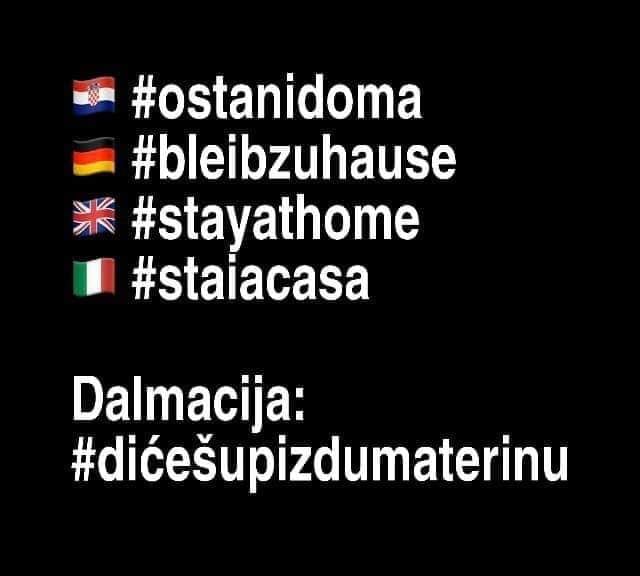
Traditional Values or Perpetuating Division? Shaping the Young Croatian Mindset
I love Dalmatia. It really is Paradise on Earth, and I genuinely believe that living there for 13 years has made me a better person.
It has certainly made me a more patient one...
Having lived there for so long, and coming with my Western mentality, it has also frustrated me more than any other place I have ever lived. It took me years and years to finally realise that there was a reason certain things, which were so obvious to this more 'advanced' Westerner, did not exist in Dalmatia for a reason - locals didn't want or need them.
I lost count of the number of foreigners who came to Dalmatia to do business, and then left frustrated. Why were things so hard there? Why can't the locals see what was so obvious, they complained?
After many years, I realised that there was one truth about Dalmatia, and that if you can accept it from the start, Dalmatia is truly Paradise. And if you can't accept it immediately, then years of frustration as a businessman await until you come to accept it.
As I explained in this short piece for the British Embassy, that one truth can be explained in a single sentence.
"Do not try and change Dalmatia, but expect Dalmatia to change you."
And if you can accept and live by that maxim, Dalmatia really is one of the best places in the world to live part of your life, particularly if you are bringing up small children.
And for those who complained about the frustrations of life, the locals had - still have - a simple answer. If you don't like it, go back to where you came from. This is the way we are, and we are not going to change and adopt your values to please you. We are the way we are, and we like it that way.
It is a strong argument and a hard one to counter, and there are plenty of other places to live if you don't like the Dalmatian way, although few which are so beautiful. Dalmatians, Croatians have a history of having to fight for their identity. Their freedom has been hard-fought and they are understandably prickly at the suggestion that they should compromise on their values. I respect that totally.
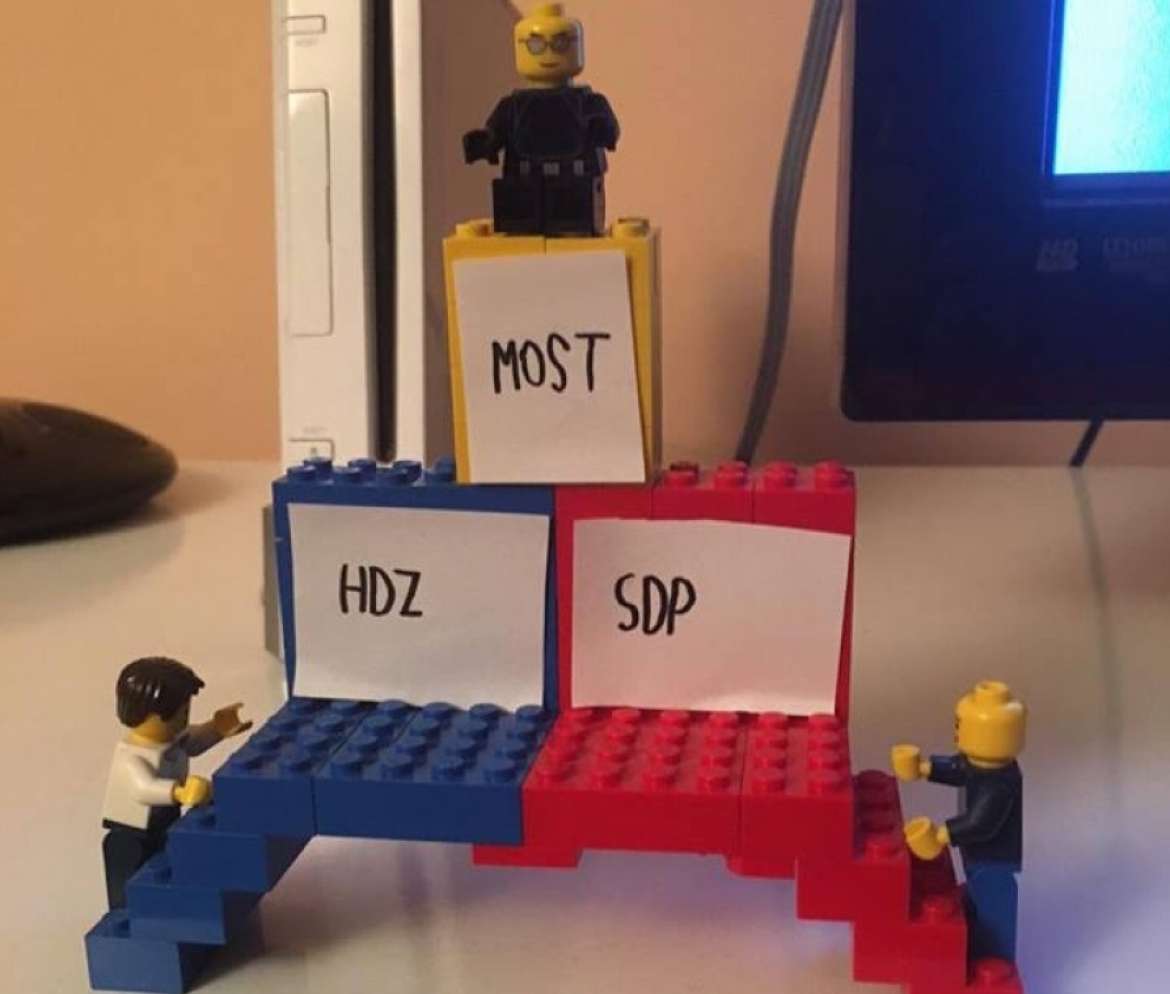
And yet...
Although I am still - and always will be - a foreigner in Croatia, I do have a bigger vested interest in the country in the form of my lovely Dalmatian wife and adorable kids. And while I respect and admire the fact that traditions and heritage have been so well preserved here over the centuries, I am beginning to wonder more and more about the healthiness of the young Croatian mindset behind this admirable protection of cultural values.
Children are not born with prejudice or hatred. Nor with a default negative mindset which sadly is the standard in the modern Croatia. But it does not take long for young and innocent kids to have their young Croatian mindset shaped for the future by events of the past.
Regular readers of TCN will know that I was a little shocked by my youngest daughter when I collected her from kindergarten as a 5-year-old. She told me that her friend Ivan was SDP and Iva was HDZ. She had no idea what either meant, but the political shaping of Croatian youth had begun. In kindergarten.
As a non-political family, I was even more shocked that my eldest aged just nine could name and recognise all the Croatian presidents, 5 prime ministers, as well as the mayors of Split, Zagreb and Jelsa. Extraordinary when you consider that the average British adult can name and recognise and know the job title of perhaps 6 politicians. And if we had lived in a political household, who knows how much of a political authority she would be.
But the politics is only part of the story.
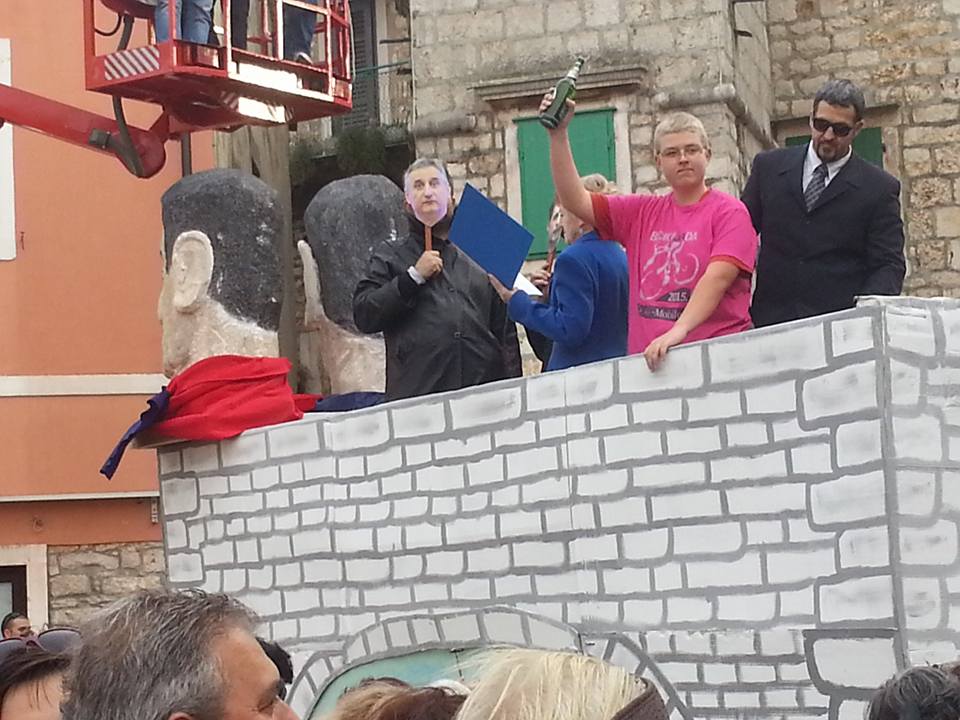
Carnival season is one of the most joyous in Croatia, a wonderfully festive occasion when locals come out to party after a long winter, as this very Catholic country prepares for Lent.
As a foreigner without much of the local language, I always took the carnival at face value, a time of community spirit and family fun. It was only a little later as I got more immersed in the way of life and spoke better Croatian that I realised just how brutal the carnival could be. And in terms of 'acceptance' in a foreign community, there is perhaps no better 'endorsement' than finding yourself with your own carnival doppelganger.
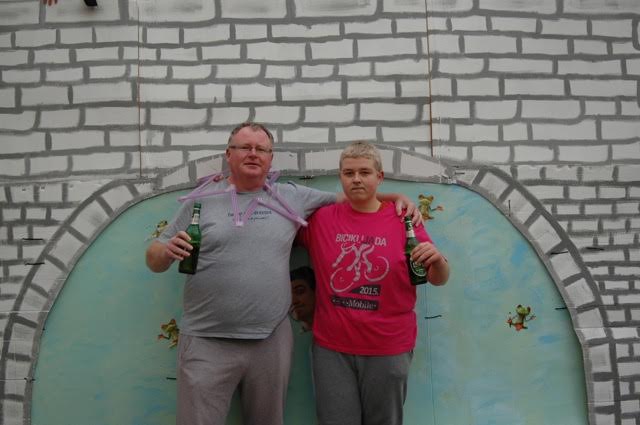
And I have to congratulate young Mili on an exceptional job well done, right down to the pink t-shirt and stylish swigging from the Lasko bottle. The only thing missing was the star around his neck that I was forced to wear.
The political sketches tended to be brutal, focused on politicians, and invariably there was the burning of one of them in an effigy as the highlight of the event. Local mayors had the chance to find out what the voters REALLY thought during some very clever and exceptionally poignant sketches. The politicians may have come out a little bruised from the experience, but it was largely good clean fun and the mayors took it in good spirit.
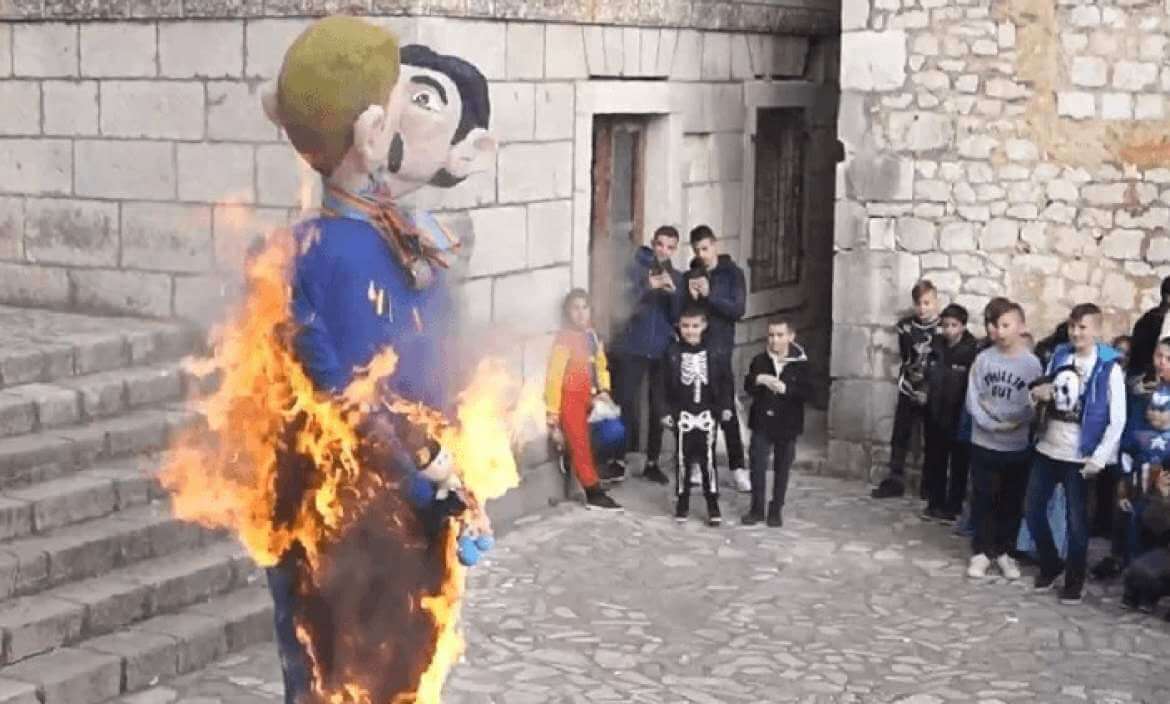
But in recent years, at least as it appears to me, there has been a subtle shift in perception in the carnival, and the focus has been less on the traditional politicians and more on individuals and issues. The one that went truly global this year, of course, was the burning of the gay couple holding a child doll of an MP with a Communist star on his forehead. While the display was roundly condemned internationally (and check out the comments on our reporting to feel how potential tourists felt), the focus of this article is on the young Croatian mindset. There were plenty of cheering kids at the burning of the gay couple, an image which will stay with them undoubtedly, and one more influence on the mindset.
One national portal shared the above video of 1935 Germany and the carnival featuring the Jews as the fall guys. Different times, and completely different scenarios, but for the young mindset? Perhaps a little less far removed.
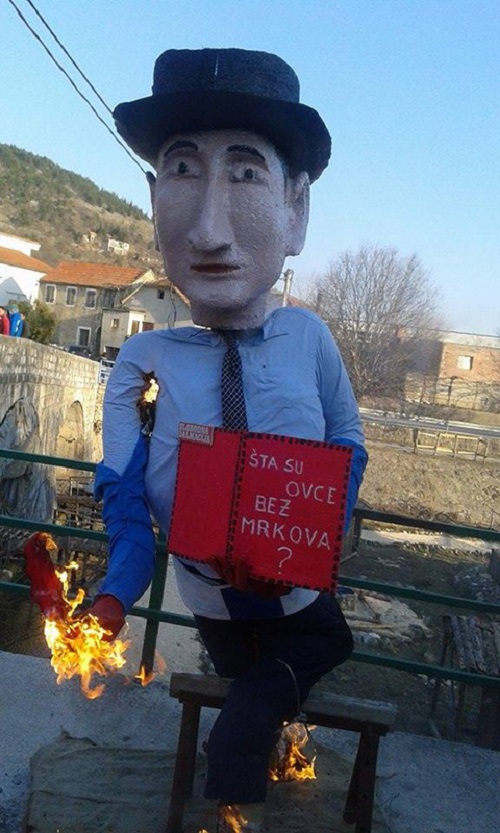
A few years ago, just a few kilometres from Imotski, it was the turn of Dalmatian journalist Ante Tomic.
The Croatian Government released a press release in the wake of the Imotski effigy:
"The tradition of burning the carnival effigy usually consisted of a sort of humorous and mocking criticism of various events in Croatian society. That sort of carnival spirit can remain within the boundaries of satire when it 'judges' someone in power like the president, the prime minister, a mayor or some other politician, but by no means those who represent various minorities in Croatian society. That is not traditional, nor entertaining nor in the spirit of Croatian and European values. As such, we condemn that act."
A condemnation which is welcome, but it does little to impact that young Croatian mindset.
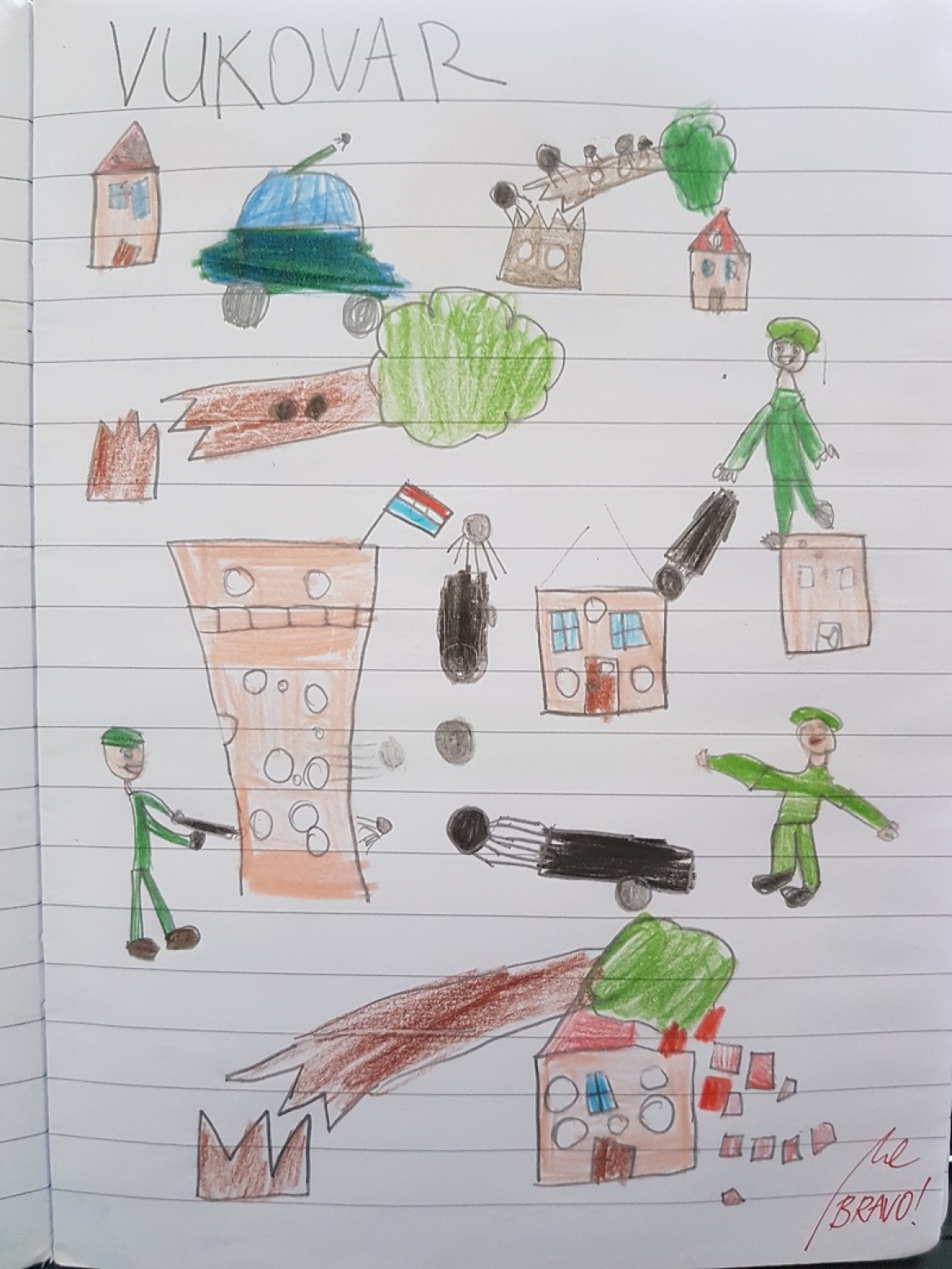
And so to one of the most sensitive topics in the Croatian psyche - Vukovar. The heroic sacrifice of the people of Vukovar is rightly remembered on a national level on November 18 each year, the anniversary of the fall of the city after its brutal siege in 1991, and it is incredibly important not only to honour and remember those who sacrificed so much so that an independent Croatia could exist, but also to teach the next generation about this vitally important part of Croatian history.
But when the time is right, and when young Croatian minds are sufficiently mature to handle the distressing details. Not at the tender age of 7.
As such, it is almost taboo to question anything about the official approach to Vukovar, something which I did not do for years until my eldest daughter came into our bedroom early one morning, aged 7, shaking and crying. I took her into the bed, kept her warm, and frantically tried to figure out what could have gotten her into such a state on the idyllic island of Hvar, in a loving family environment.
It turned out that she had had her first nightmare due to the homework she had had to do. For Vukovar Day. Aged just 7, here is the homework she presented, above (and note the 'Bravo!' from the teacher in the bottom corner).
"Some of my friends drew dead bodies, Daddy, but my teacher said we shouldn't do that."
7 years old. Another piece in the shaping of the young Croatian mindset. I was so angry at the time that I wrote Is It Really Necessary to Poison the Minds of the Next Generation? I was expecting a torrent of abuse from my faithful trolls, but not a single comment.
I am no longer religious - 9 years in a Jesuit boarding school with priests convicted for child abuse can do that to a chap - but I respect the right to religious expression, and there is no denying that the influence of the Catholic church - both benign and malign - has helped define the Croatian nation and its identity over the centuries.
In terms of shaping the young Croatian mindset, the Catholic church inserts its influence at an early age. Religious instruction, called Vjeronauk, is a major part of the curriculum from day one. I say Religious instruction, but it should be called Catholic instruction, for the focus is on all things Catholic in those important early formative mindset years. I decided not to enroll my kids in Vjeronauk, not because I am anti-religion, but because I wanted them to make their own minds up about things, having learned about all religions. Vjeronauk in those formative years focuses on one religion only - Catholicism.
Conservative traditional approaches, and they have all served to shape the Dalmatian mentality, which in turn contributes to the wonderful Dalmatian way of life that we all adore. But - at least in the humble opinion of this fat Irishman - there is a disservice being done to the youth of today with such an approach. This closed mindset is one of the factors, at least in my opinion, for the mass emigration from Croatia in recent years. I have lost count of the number of young Croats abroad who place very highly on their list of benefits of emigration as 'finally being able to breathe.'
Dalmatia I love you. You are like malaria. Once you get under the skin, you infect people for life with your beauty and lifestyle. But do take a closer look at ways to preserve your wonderful traditions while equipping your children with the tools to survive in the modern world. The world has moved on and, unless the approach to shaping the young mindset changes, so will your children too.
One Day or Day One Conference: Earlybird Tickets On Sale, Space Limited
February 11, 2020 - Earlybird tickets are on sale for the One Day or Day One tourism conference in Zagreb this April. And we promise you won't want to miss out.
Tickets are now on sale for the conference of the year in the B2B tourism sector, which will be held on April 2 at the Forum Congress Center in Zagreb with the support of the Ministry of Tourism, the Croatian National Tourist Board and the Croatian Chamber of Economy, organized by the leading B2B tourism portal HrTurizam.hr.
Namely, One Day or Day One, which is held just before the start of the tourist season, will bring together everyone who means anything in the tourism sector.
"We all say that we have an incredible amount of potential wherever we turn, and that we need a change in the context of market development, in order to turn that potential into resources. But in order to turn these potentials into resources, we need to be more proactive in addressing market development and growth, there must be dialogue and common communication and consensus around common themes and challenges. The question we all have to ask ourselves is: How do we move faster and better? What can we do to make tomorrow better? Where do we see Croatian tourism in 2030?,” said the conference director and founder of the HrTurizam portal, Goran Rihelj.
HrTurizam.hr wants to be at the center of this story as a kind of mediator, a channel that connects through dialogue and communication, and provides concrete solutions. In the tourism vocabulary, it is necessary to define a complete tourism product, or to remove market barriers for the development of the entire tourism sector.
"And that's why there is a need to launch the #DayOne platform, which focuses on connecting the 'incompatible' or initiating communication. The main focus is not on problems and the past, but on constructive, open dialogue and solutions. The focus is on the positives, not the negatives. The focus is on synergy and collaboration. As I pointed out, #DayOne is not another conference but a platform. Because we can talk about the future of our tourism not only one day during the conference, but every day,” adds Rihelj.
An excellent story about cooperation with big brands and a positive example of synergy between public and private will be told by Denis Ivošević from the Tourist Board of Istria. The challenges and opportunities of cooperation between OPGs and destinations in the 1 VS 1 format will be discussed with Petra Butković from the Lika Destination Cluster.
The One Day or Day One conference should showcase all niches and all development opportunities in Croatia. Thus, Berislav Sokač from Run Croatia will bring an interesting vision of Croatia as a racing destination.
We continuously talk about continental tourism and emphasize the importance of developing the continent that has the greatest opportunities for year-round tourism. The best campaign of the East was the great HeadOnEast campaign as part of Croatian Tourism Days in Slavonia. Ivana Juric from the Osijek-Baranja Tourist Board will also be at the conference.
How tourism is developed in Austria, which is one of the best examples of year-round continental tourism, will be told by Michael Fend, LAG manager at Steirischen Vulkanlandes.
Paul Bradbury, owner of Total Croatia News, One Day or Day One conference partner, and an ambassador of Croatian tourism, is someone who sees the whole story from the outside as a foreigner with a Croatian passport. His lecture, “5 tourism gifts that Croatia is ignoring, and how to fix them,” will certainly arouse great interest.
Branding in Croatia is a unique story that is talked about often, and the importance of branding does not need to be over-emphasized, because it is imperative today. The conference will also be thoughtfully themed with branding, a complex process in which we cannot go wrong. Bozo Skoko will discuss this topic at the conference, too.
The private sector in tourism has a lot to say. What are the challenges and biggest problems, what they expect from the public sector, and what solutions they propose will be shared in a large panel where there will be representatives of hoteliers, travel agencies, family accommodation, and caterers.
Tourism Minister Gari Cappelli, who has supported the conference and expects a lot from it, will present a tourism development plan and a vision of where we see each other in 2030. The fact that the Minister of Tourism and his associates will accompany the entire conference already gives hope for the detection of genuine problems and the concept of concrete solutions. The same panel should also feature the Croatian National Tourist Board, which should be represented by Director Kristjan Stanicic. This panel will give clear guidance to the private sector, where Croatia is going, and where Croatia wants to be. The moderator of this panel is acclaimed communications expert Kresimir Macan.
How private and public sector dialogue and cooperation can look will be revealed by the example of Ognjen Bagatin and Bagatin Clinic’s health tourism development.
One of the current leading tourism experts, Doug Lansky, will speak for the first time in Croatia about positive global examples of how tourism destinations are positioned, developed and grown. Doug's lectures have always attracted a large number of listeners and attention, especially from the tourist public and the profession, and he has a large base of followers in Croatia as well.
It is crucial to emphasize that after the conference, meetings with the private sector in each area follow, in order to gather all concrete solutions into one strategic document, with a clear argument of the whole issue, and most importantly, with concrete solutions offered to accelerate market change. A document that will integrate the views of the private as well as the public sector, with the aim of consensus on the main challenges with a specific time interval on how to overcome them.
There will also be an after party in a location yet to be announced, with discounted drinks and a chance for attendees to network with like-minded progressive tourism professionals, as well as meet some of the conference speakers.
Tickets can be purchased directly from HRTurizam.
For Earlybird entries, which run through March 20, tickets are 750 kuna, or 40% of the total ticket price. After March 20, the ticket price will be 1250 kuna. Seats are limited.
Don't miss out on the first-ever One Day or Day One tourism conference in Zagreb!
To read more about travel in Croatia, follow TCN’s dedicated page.


